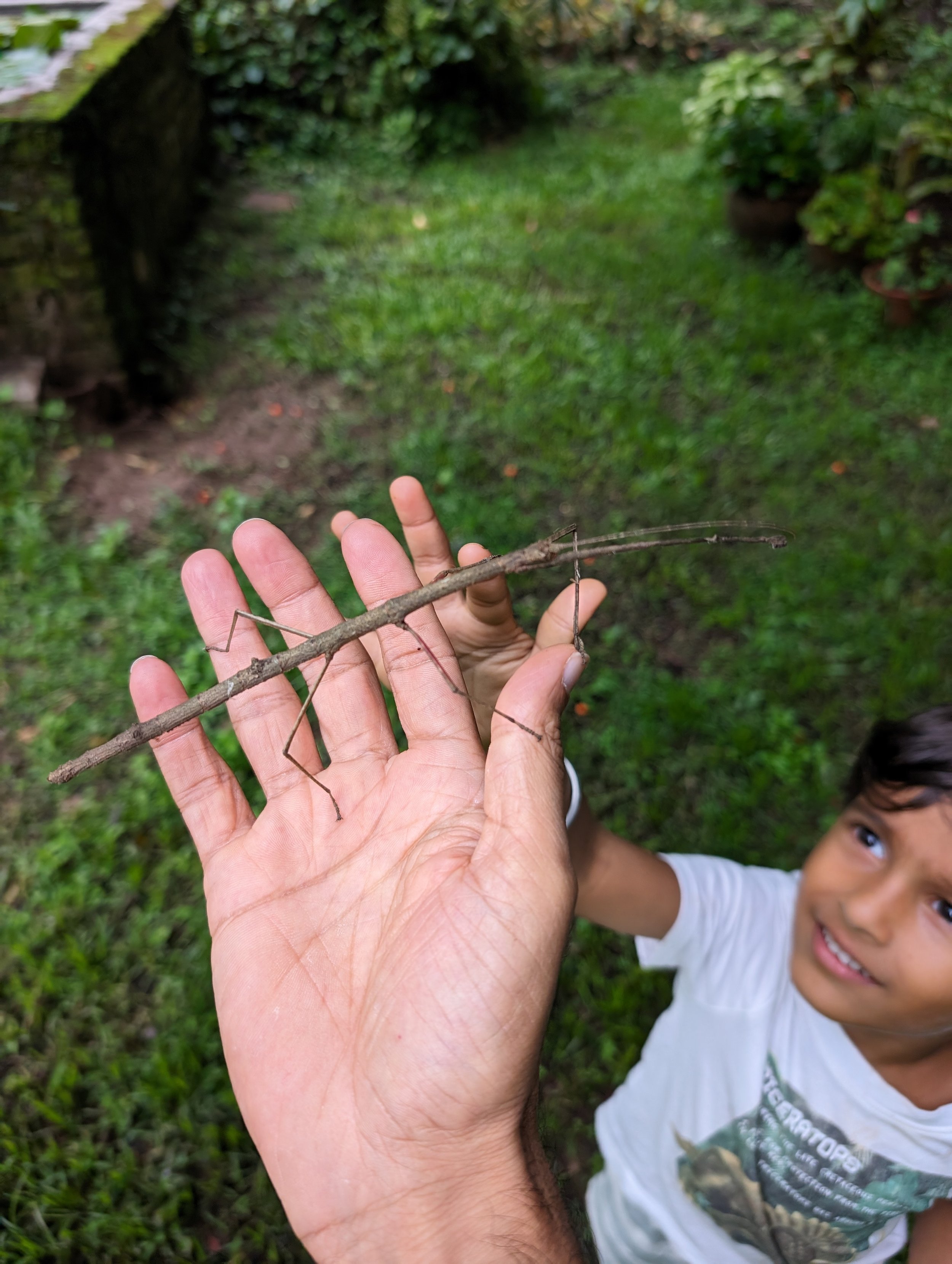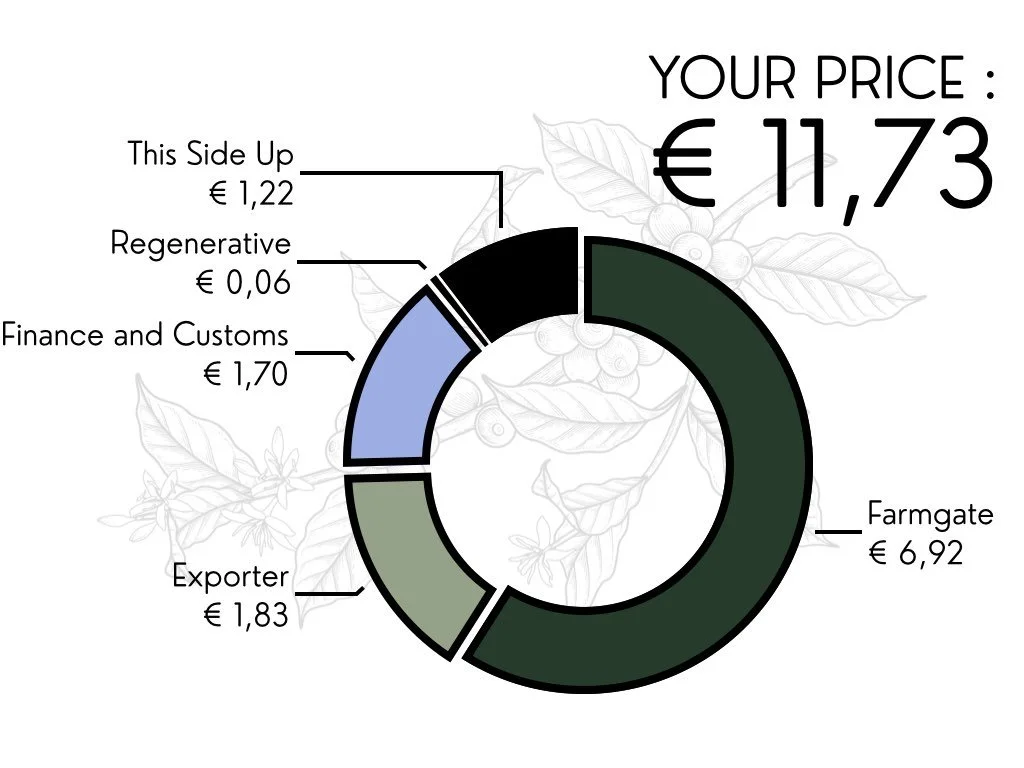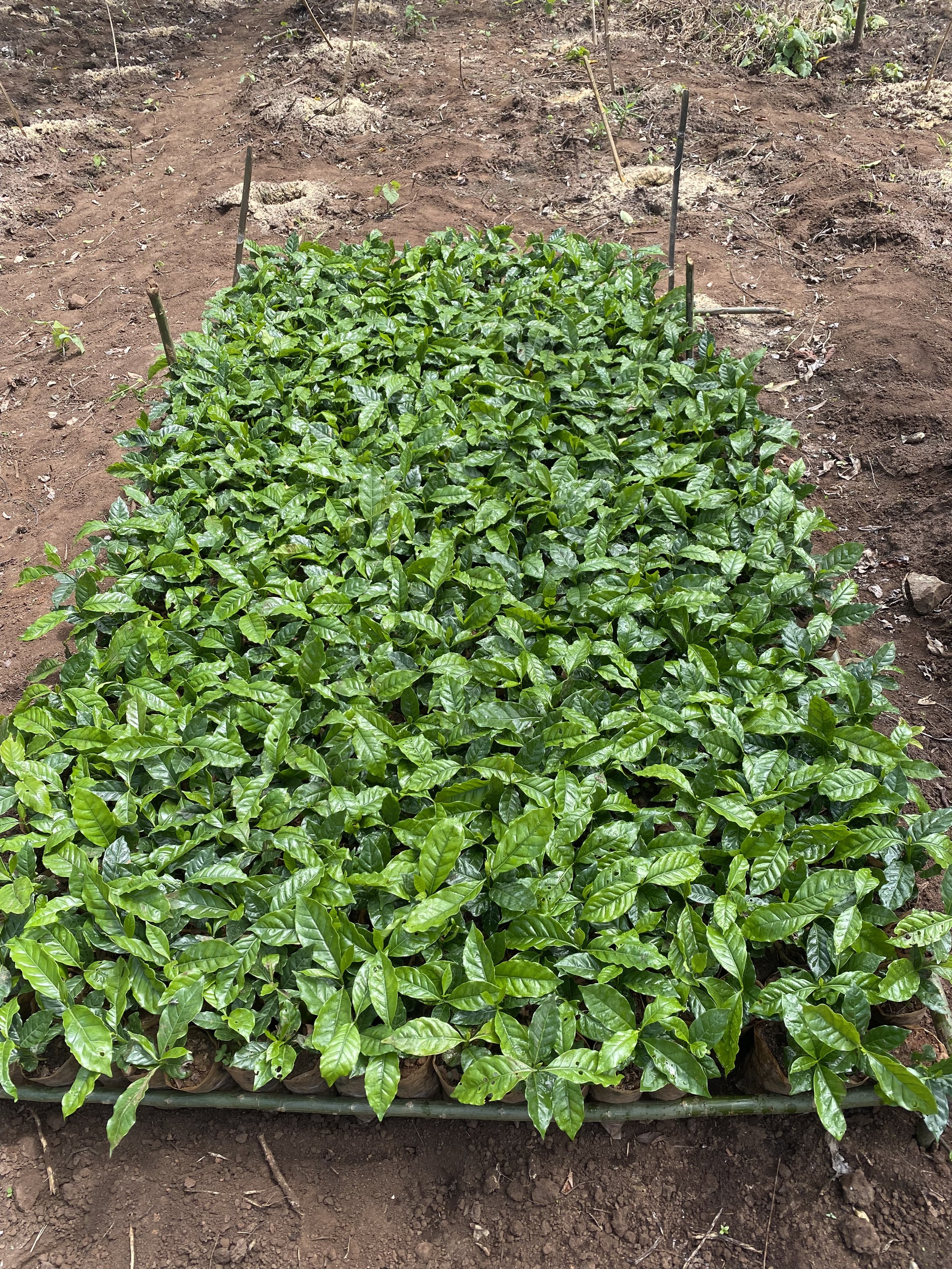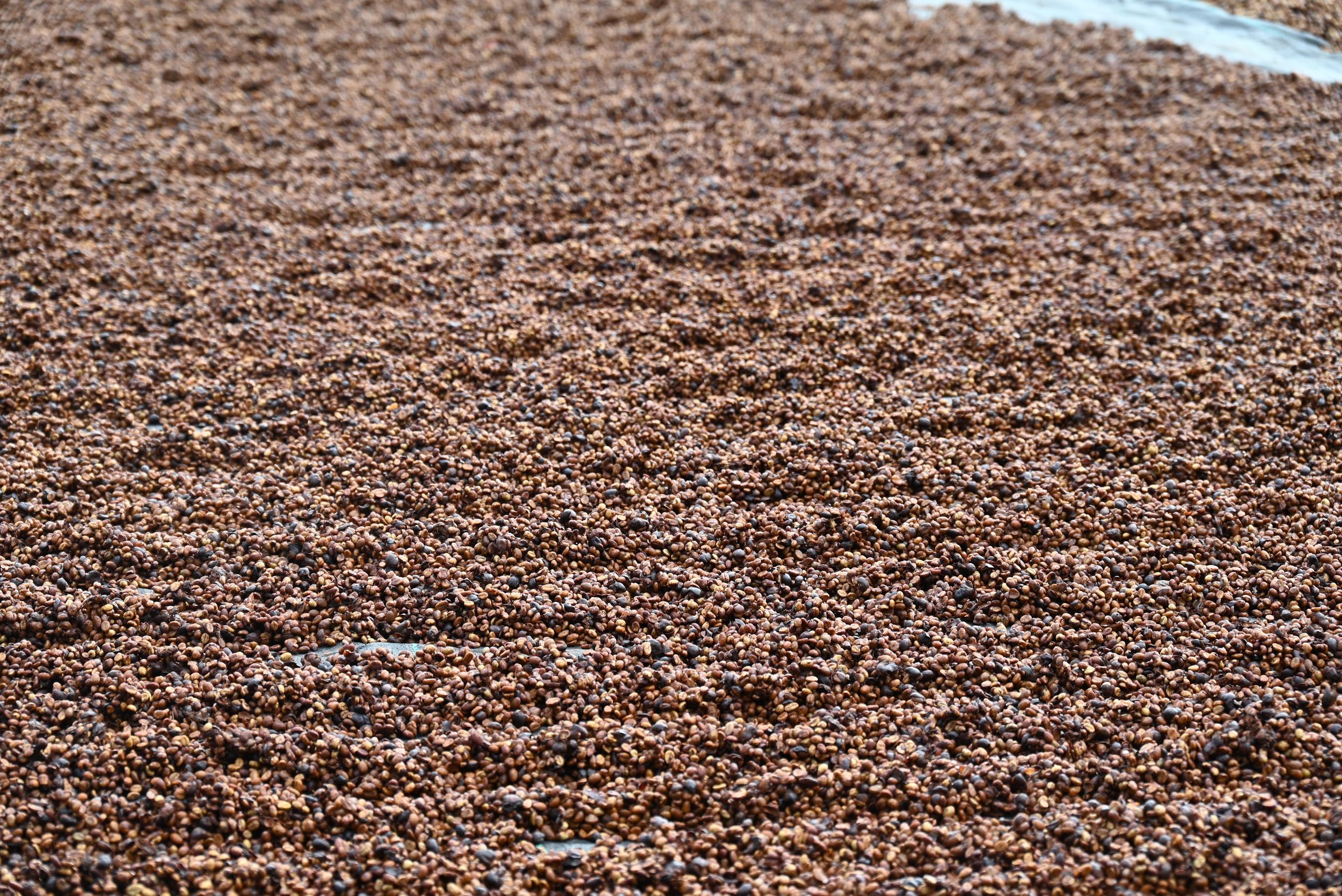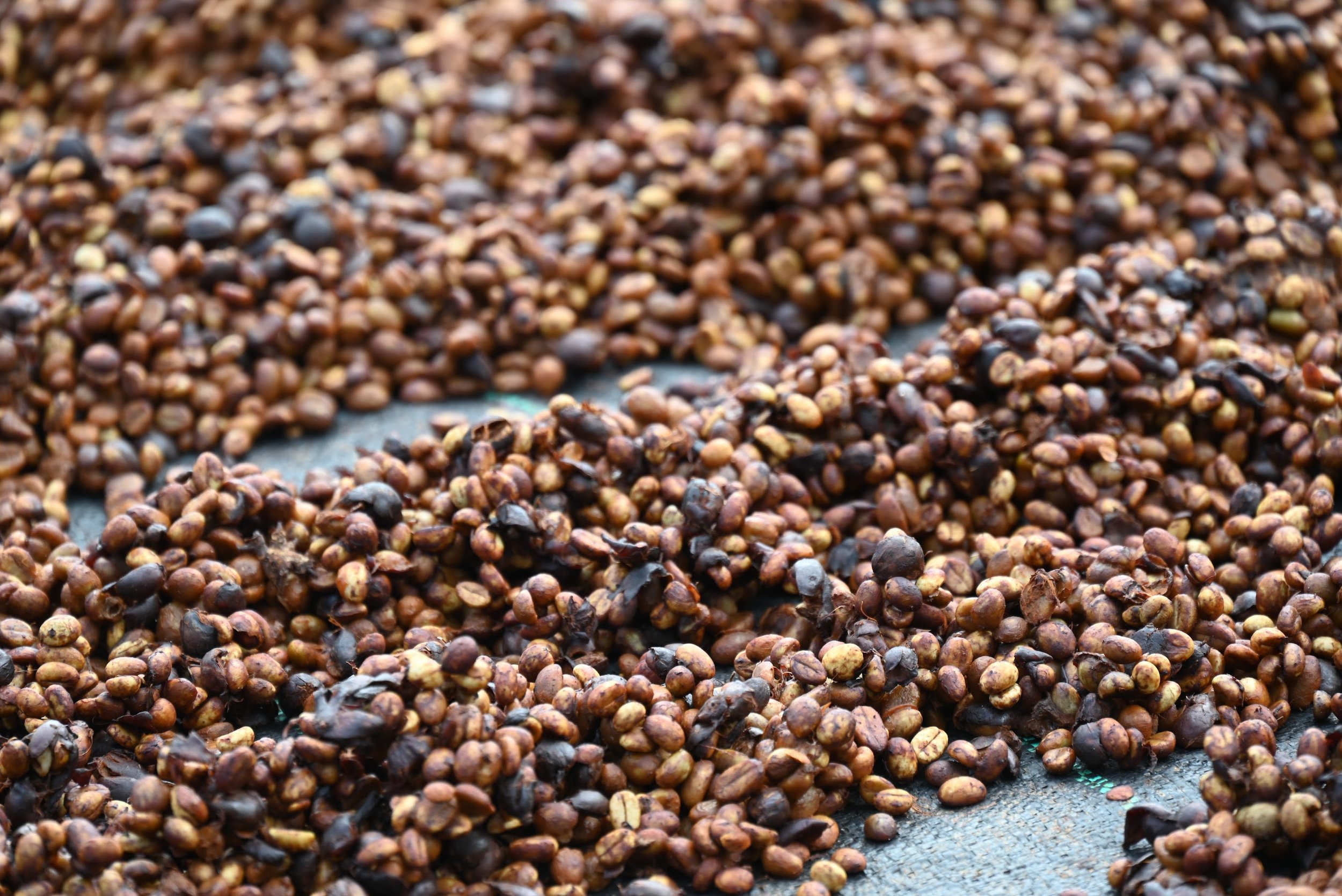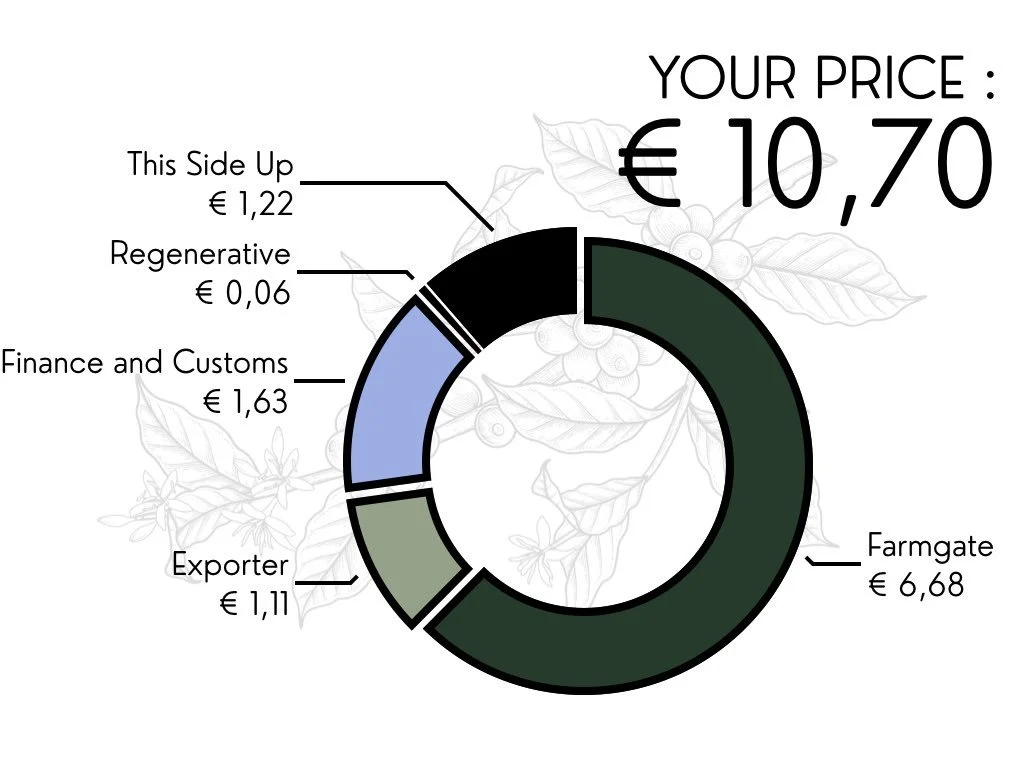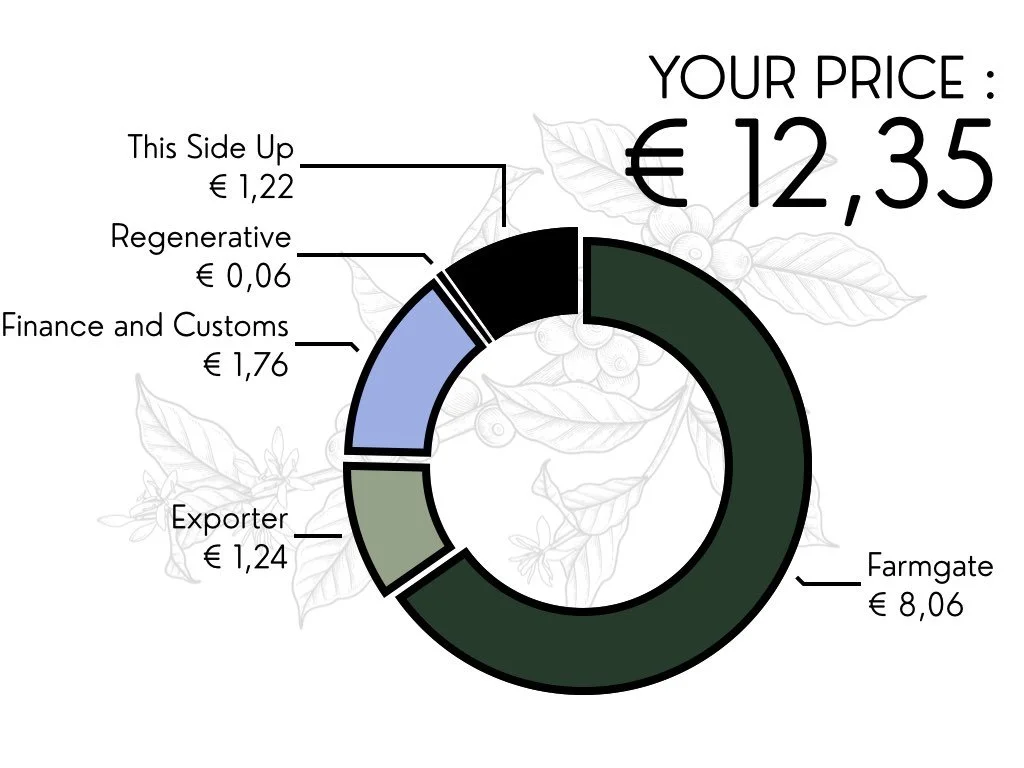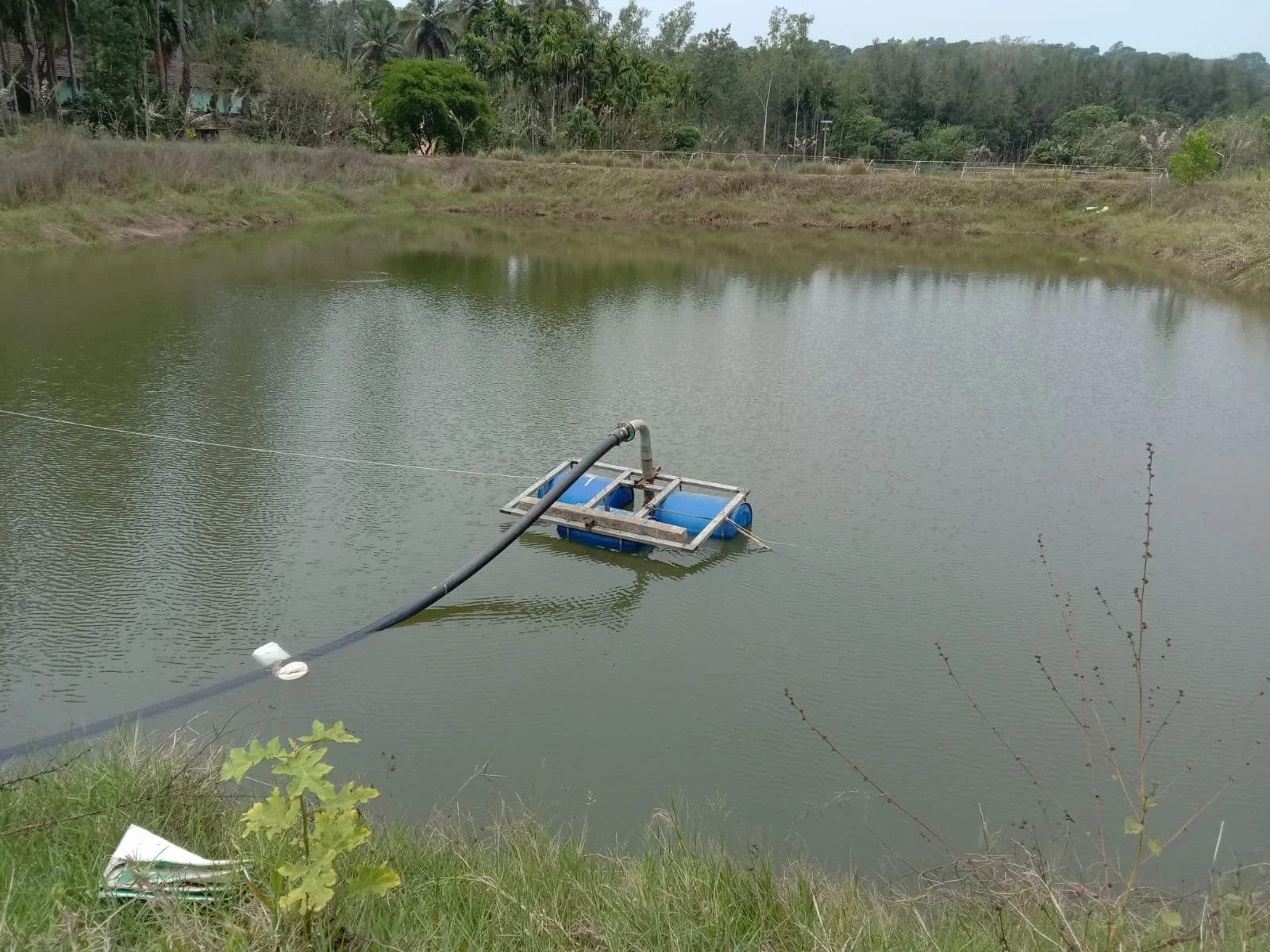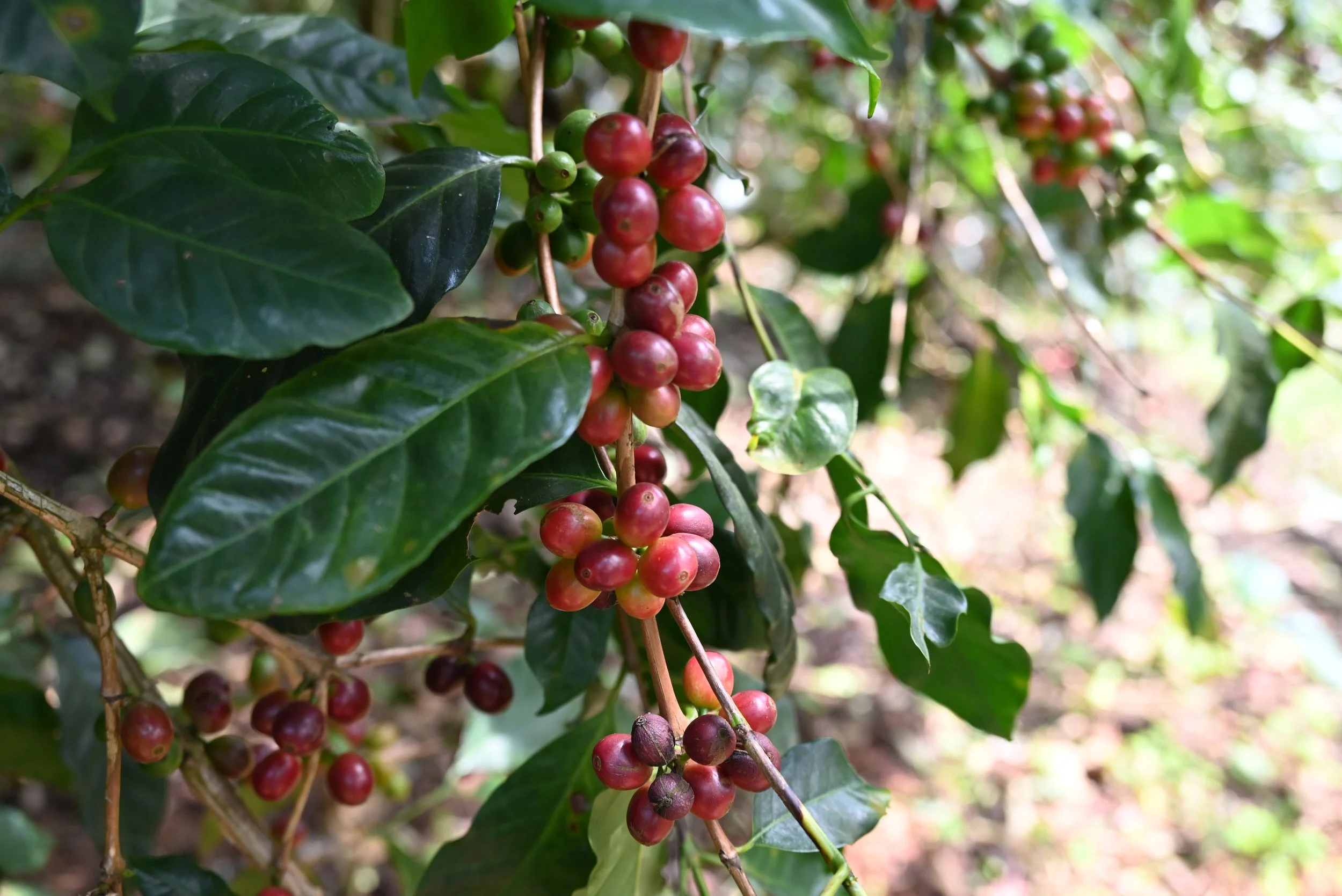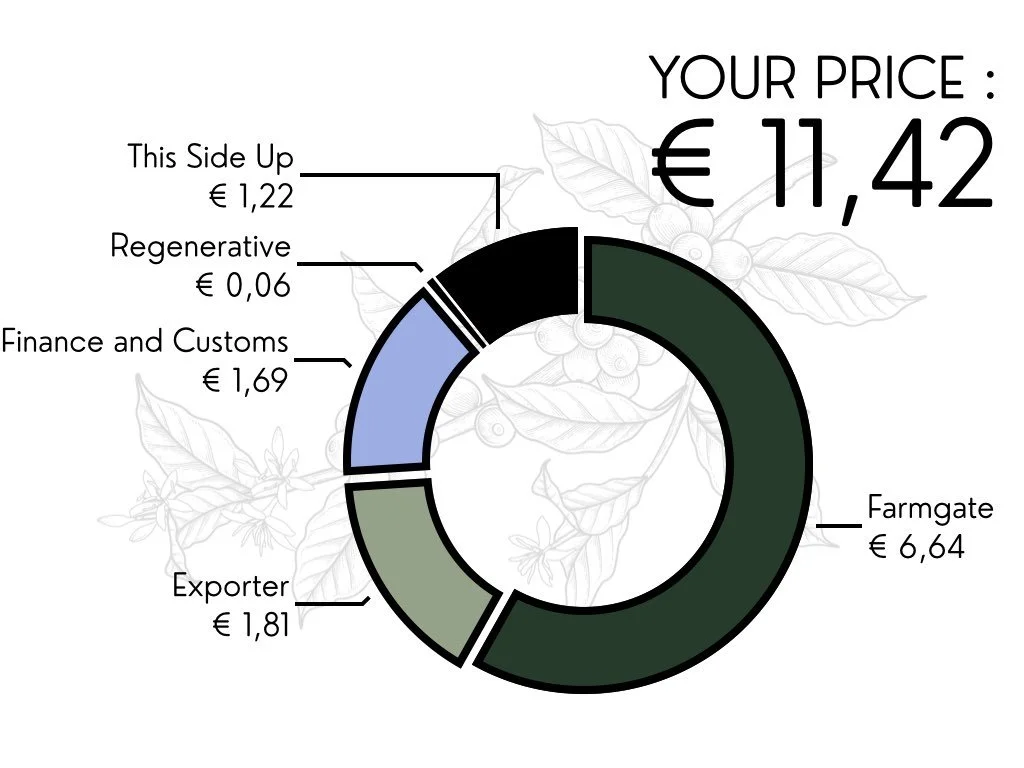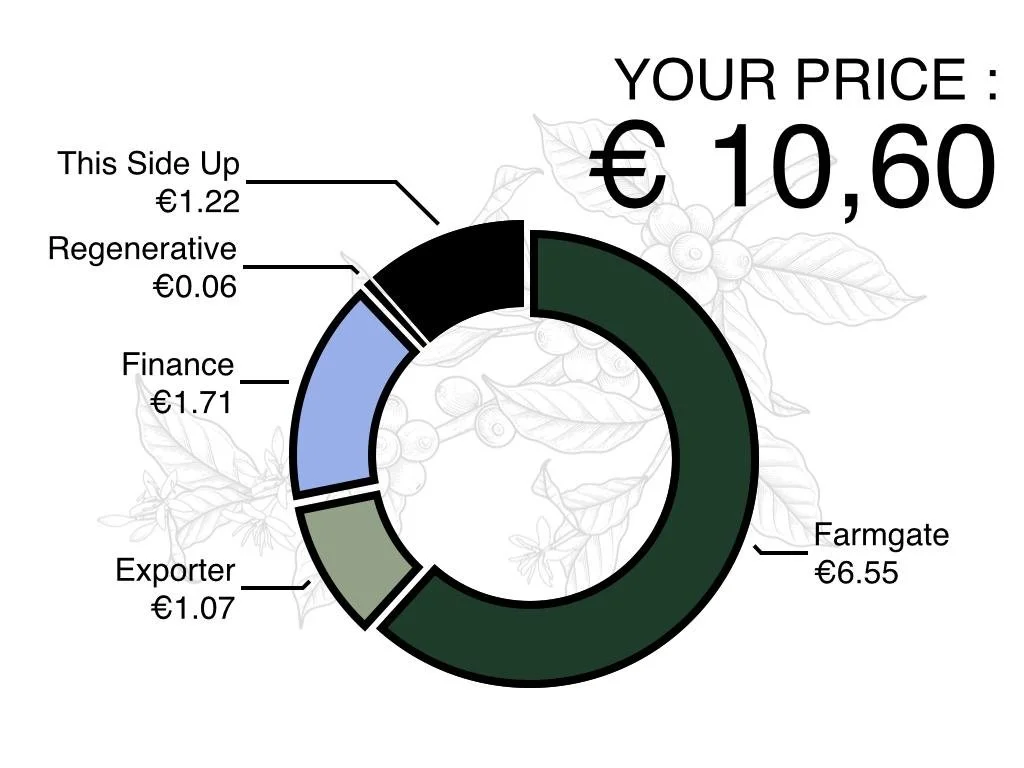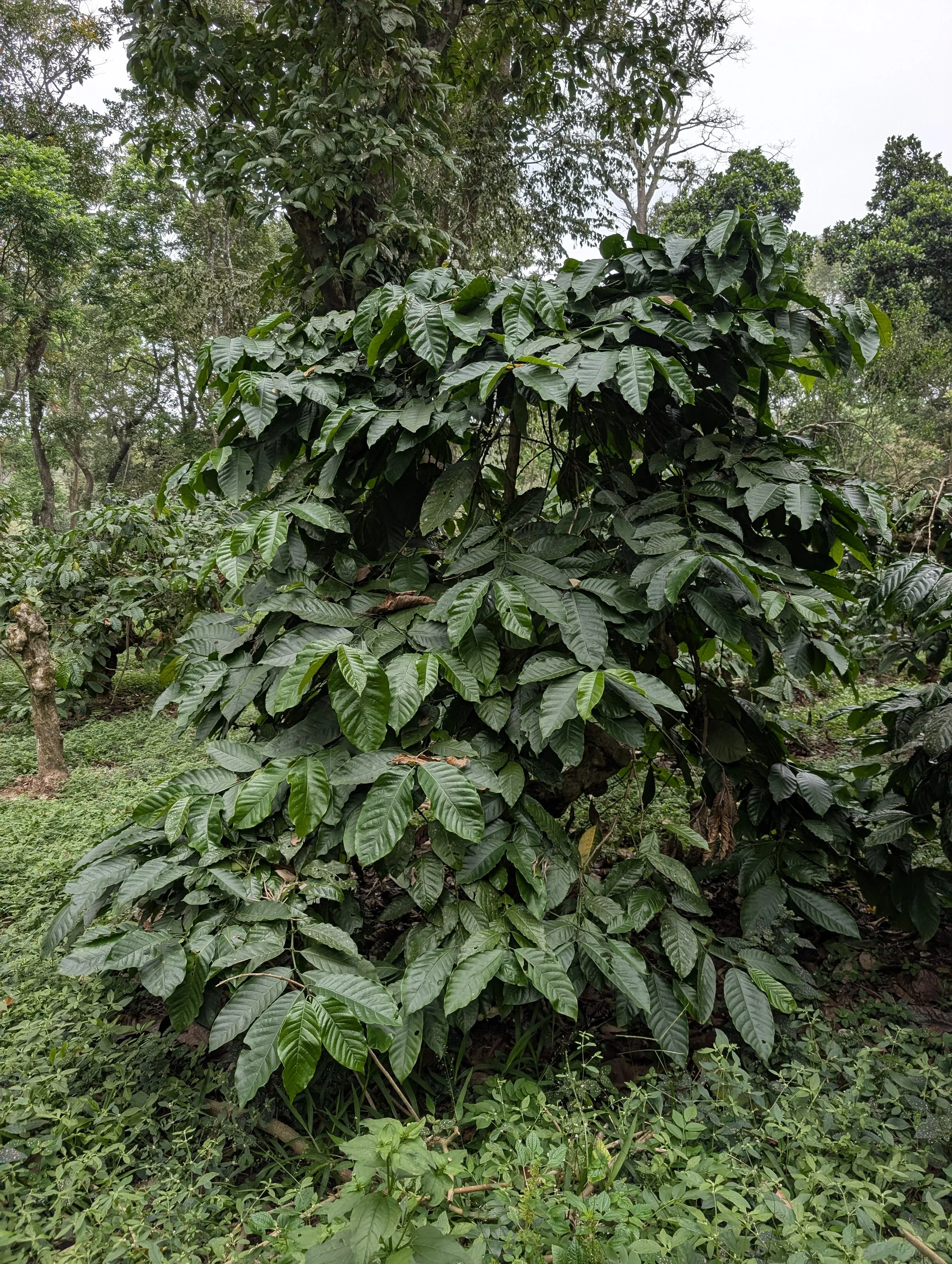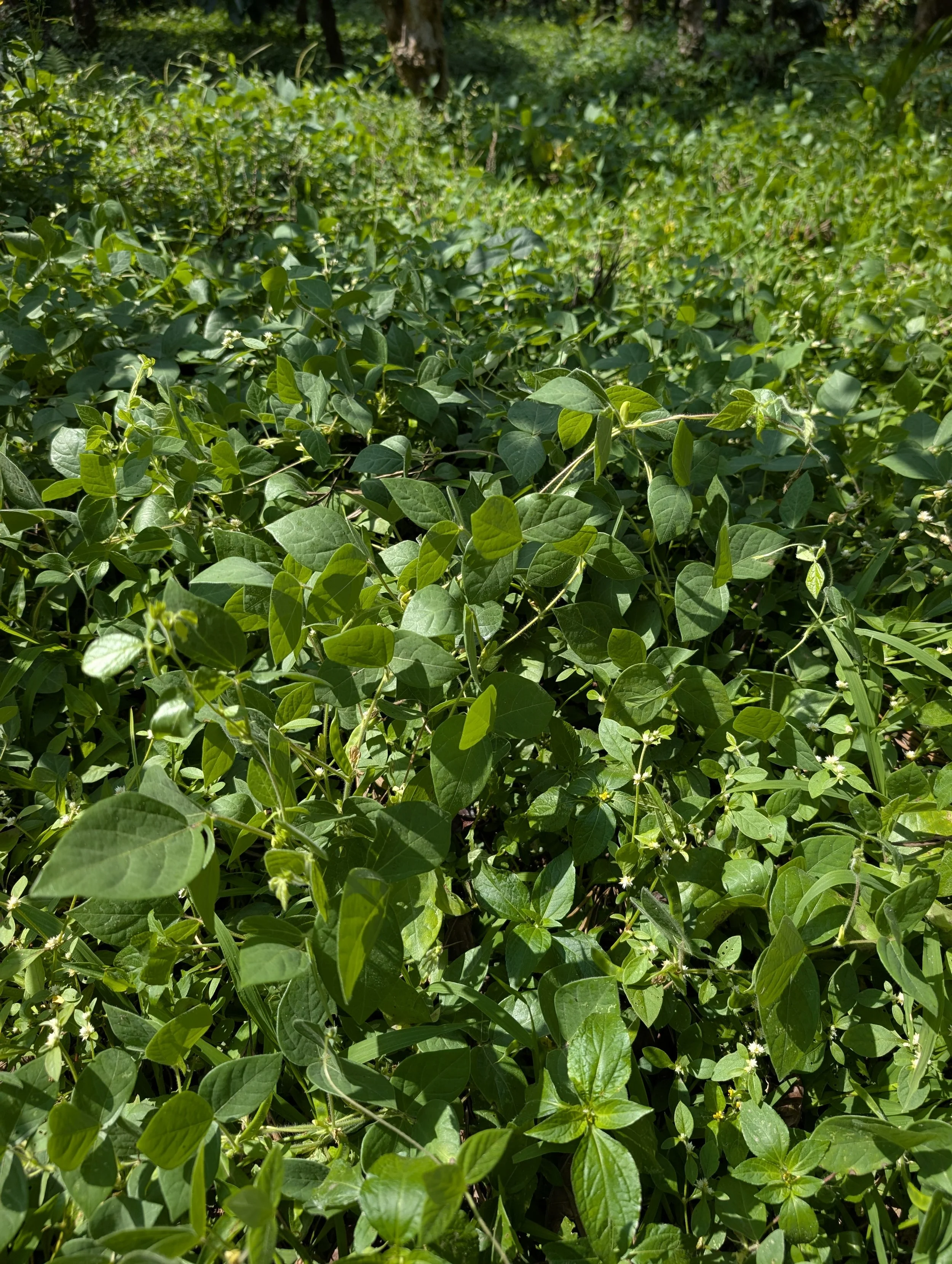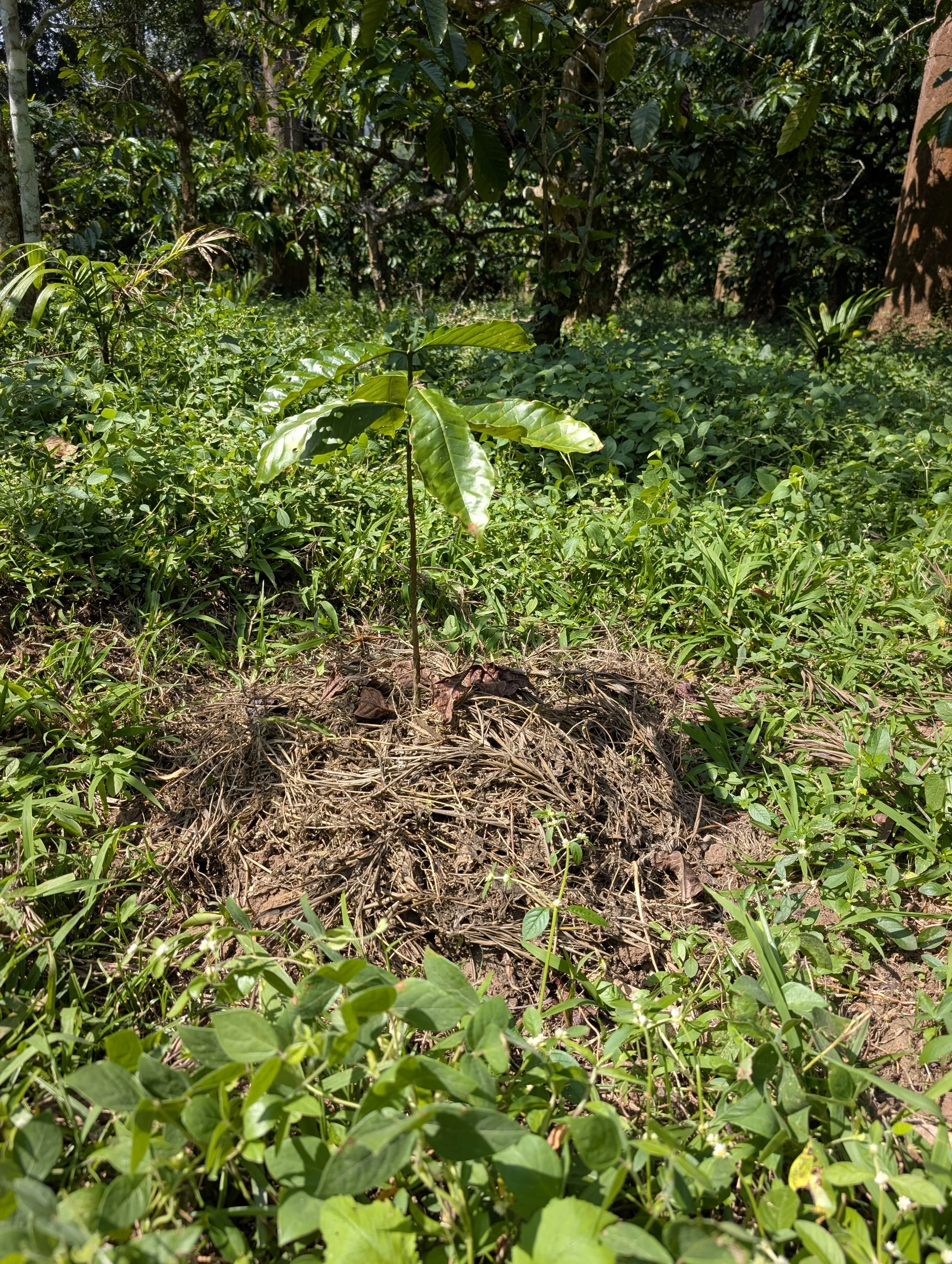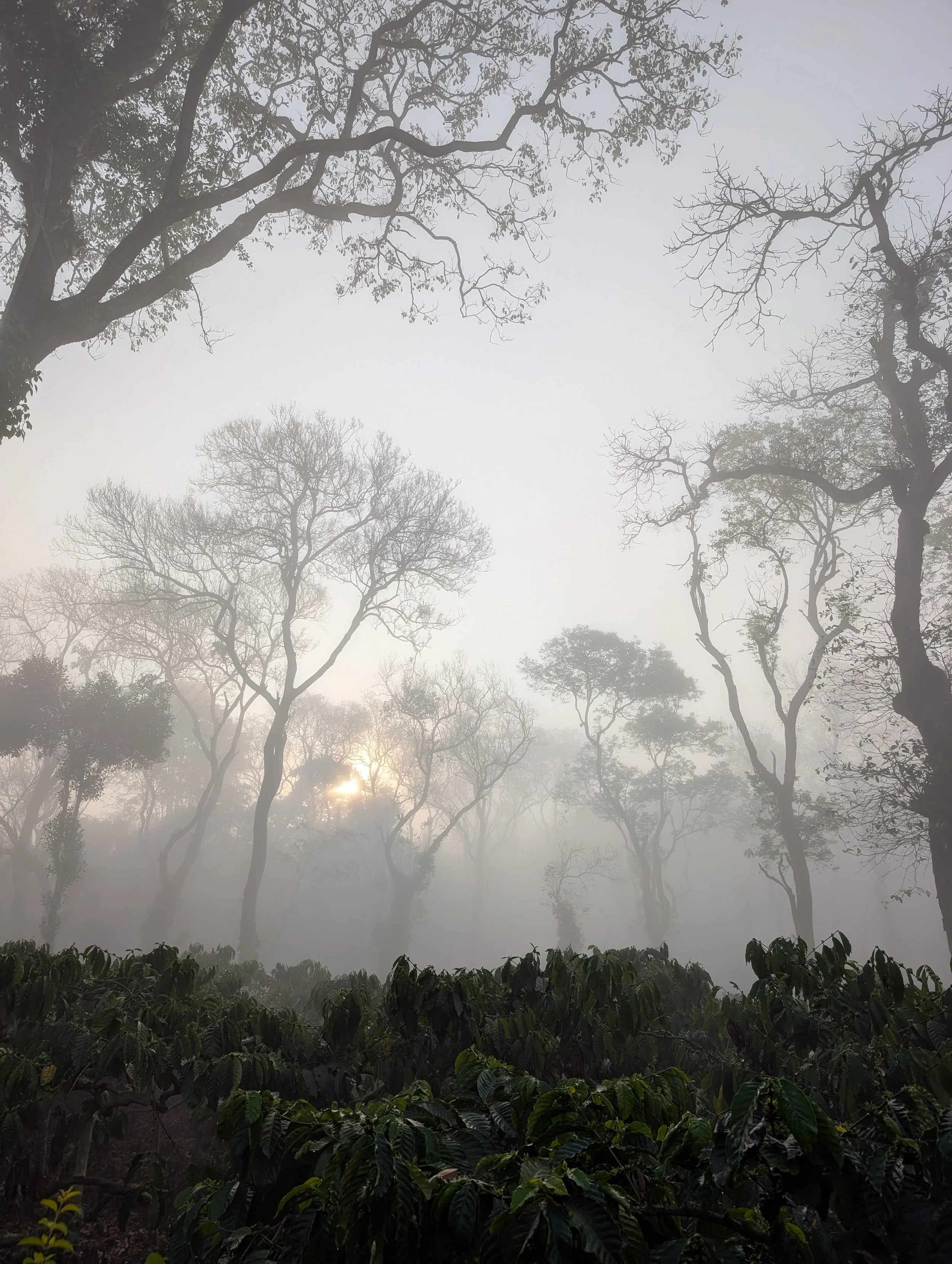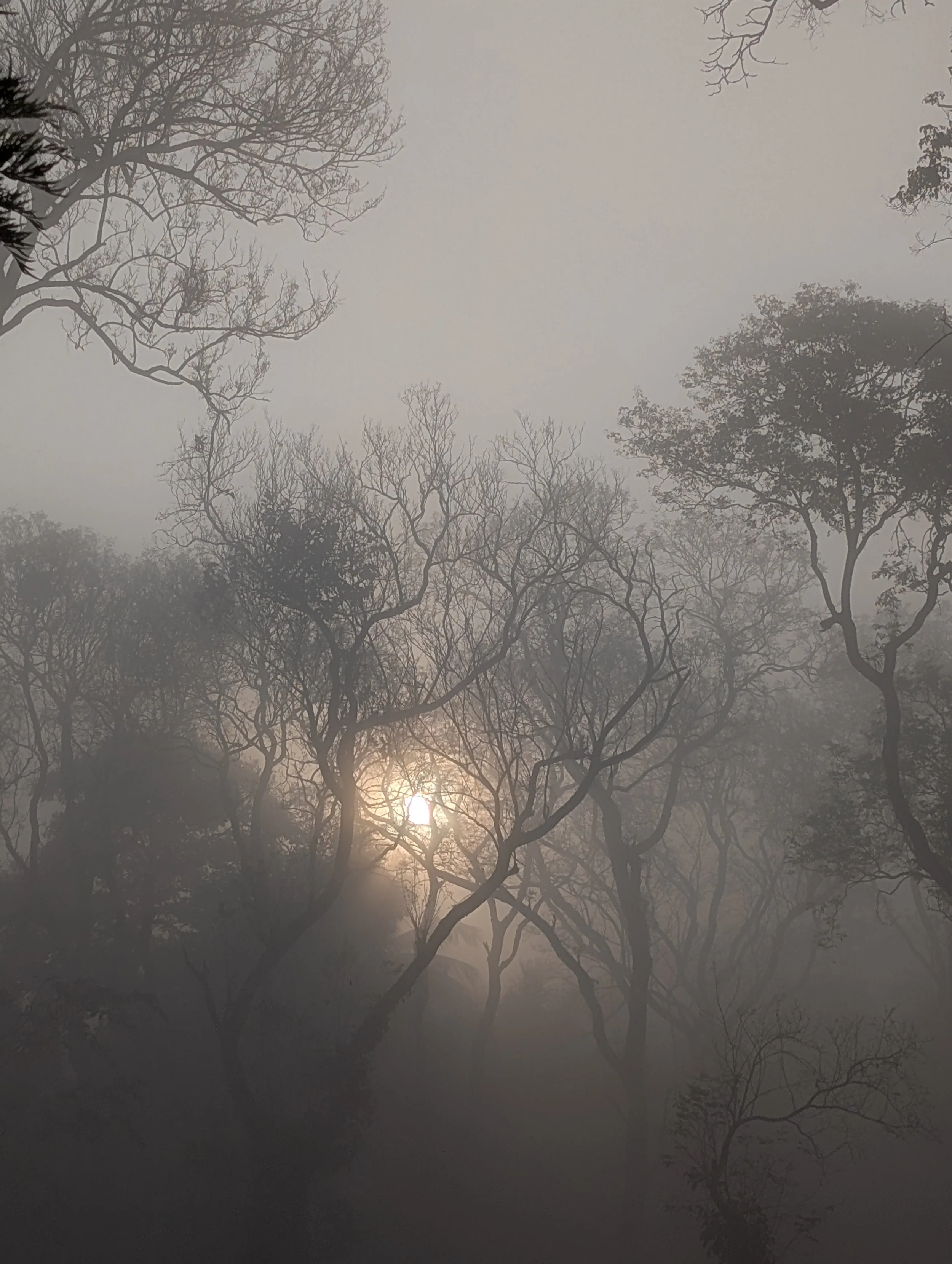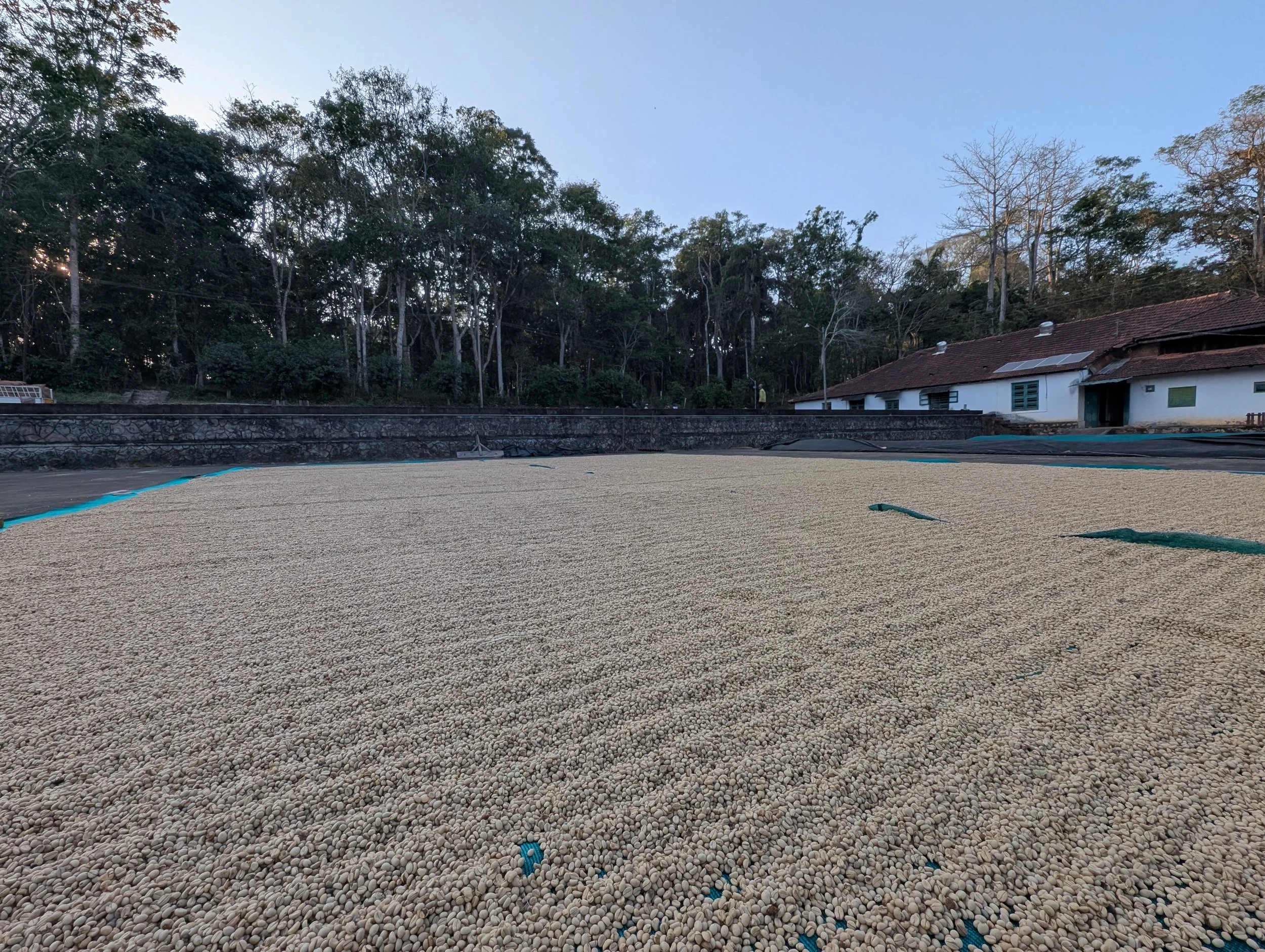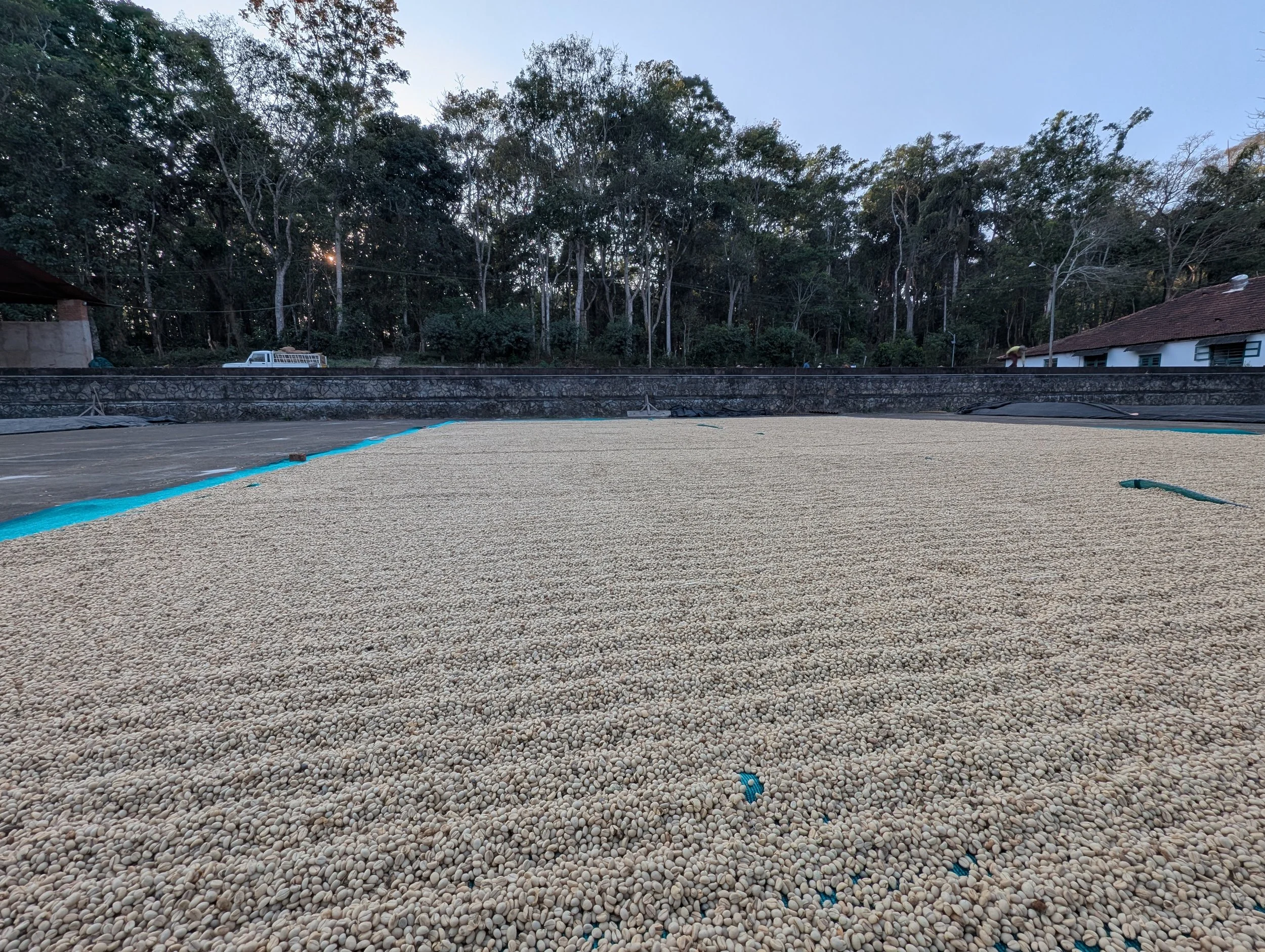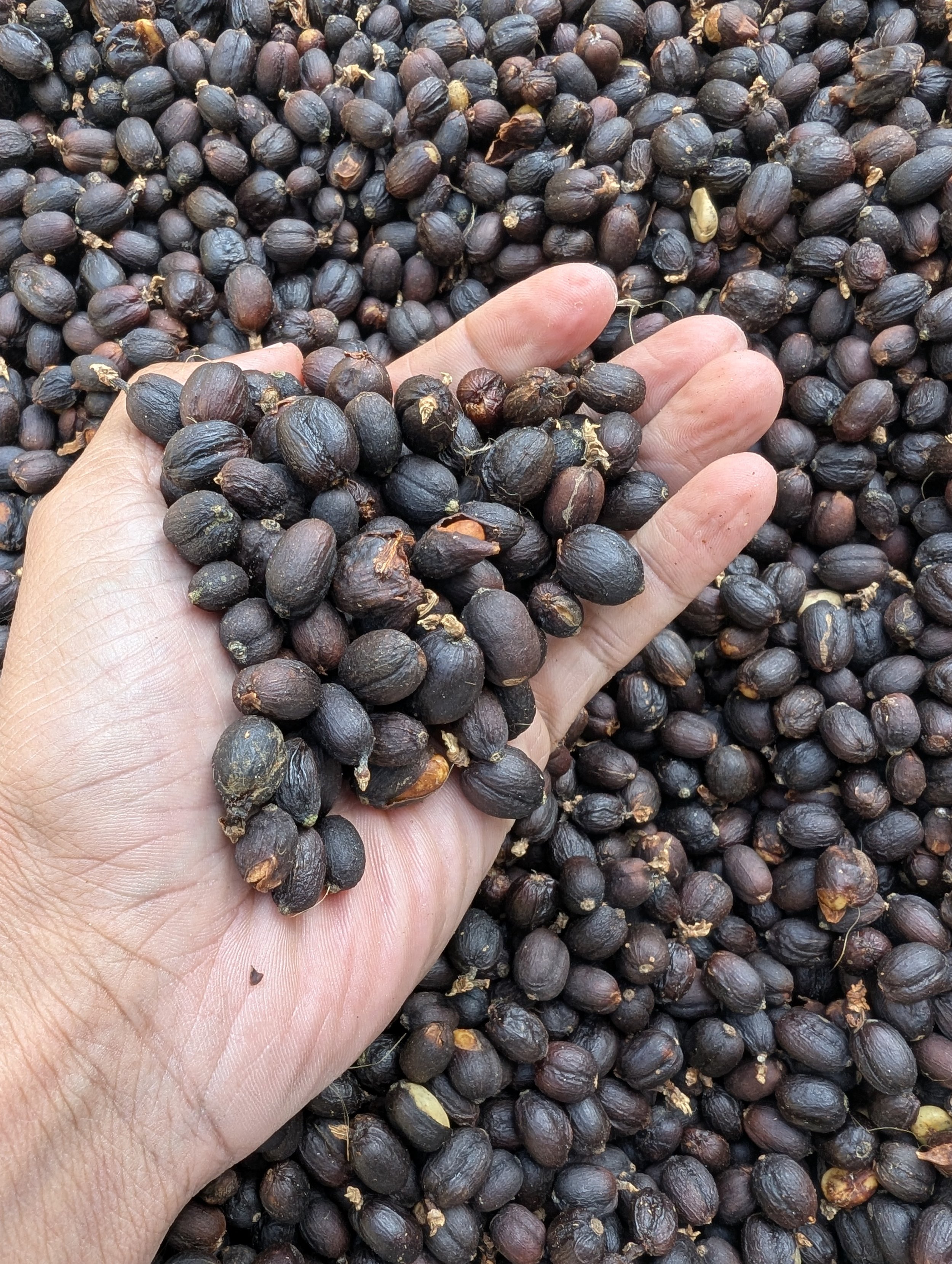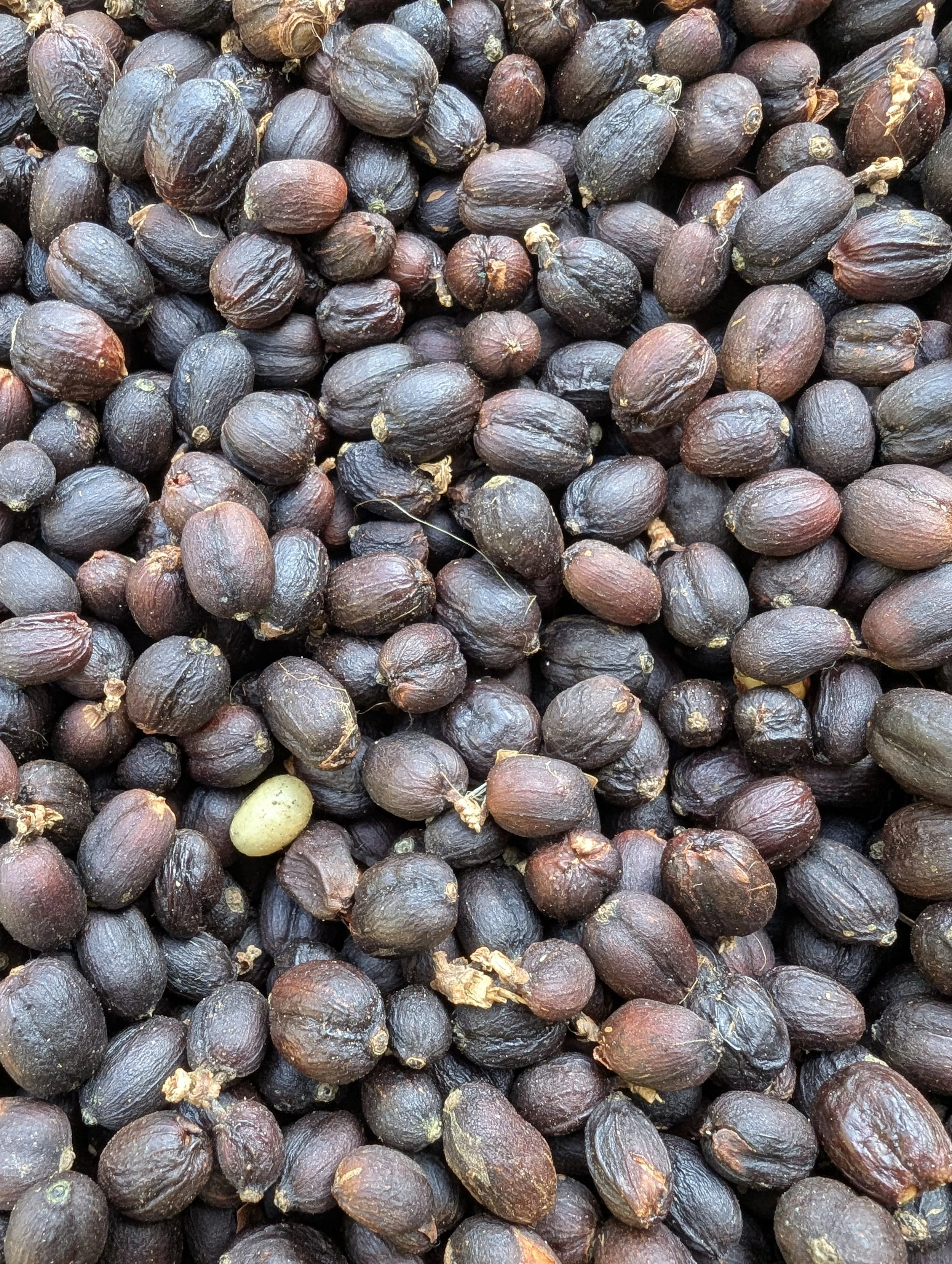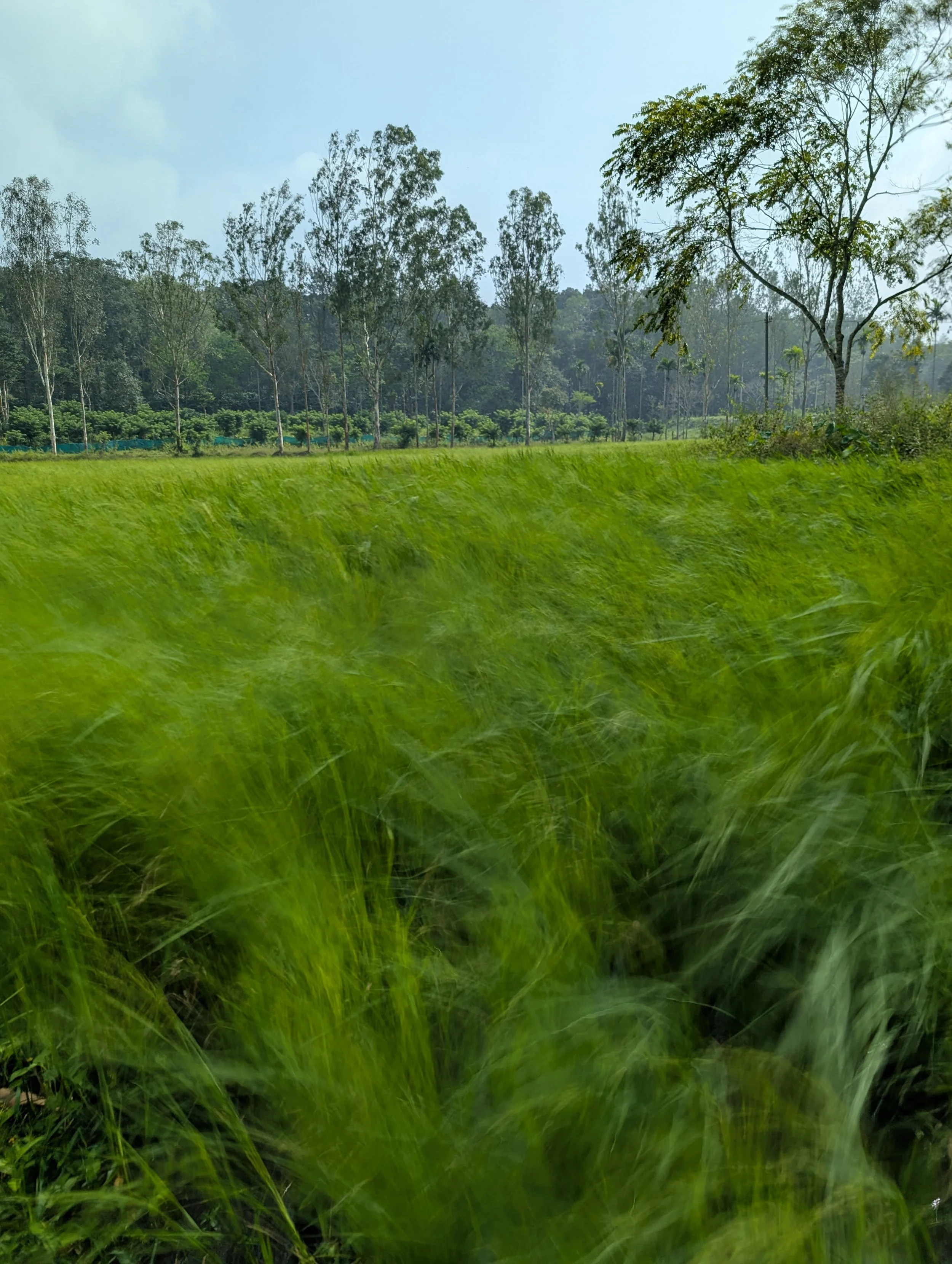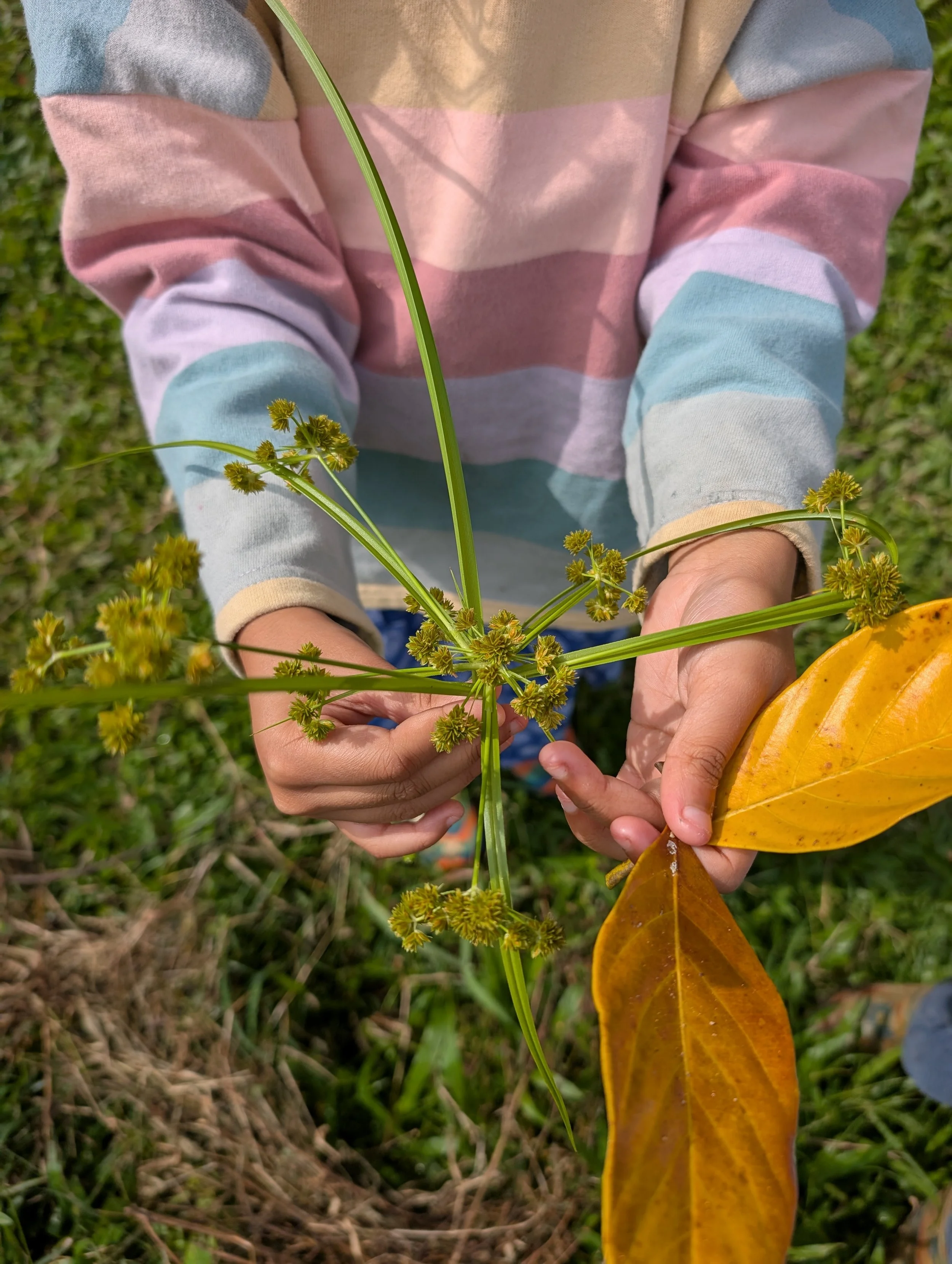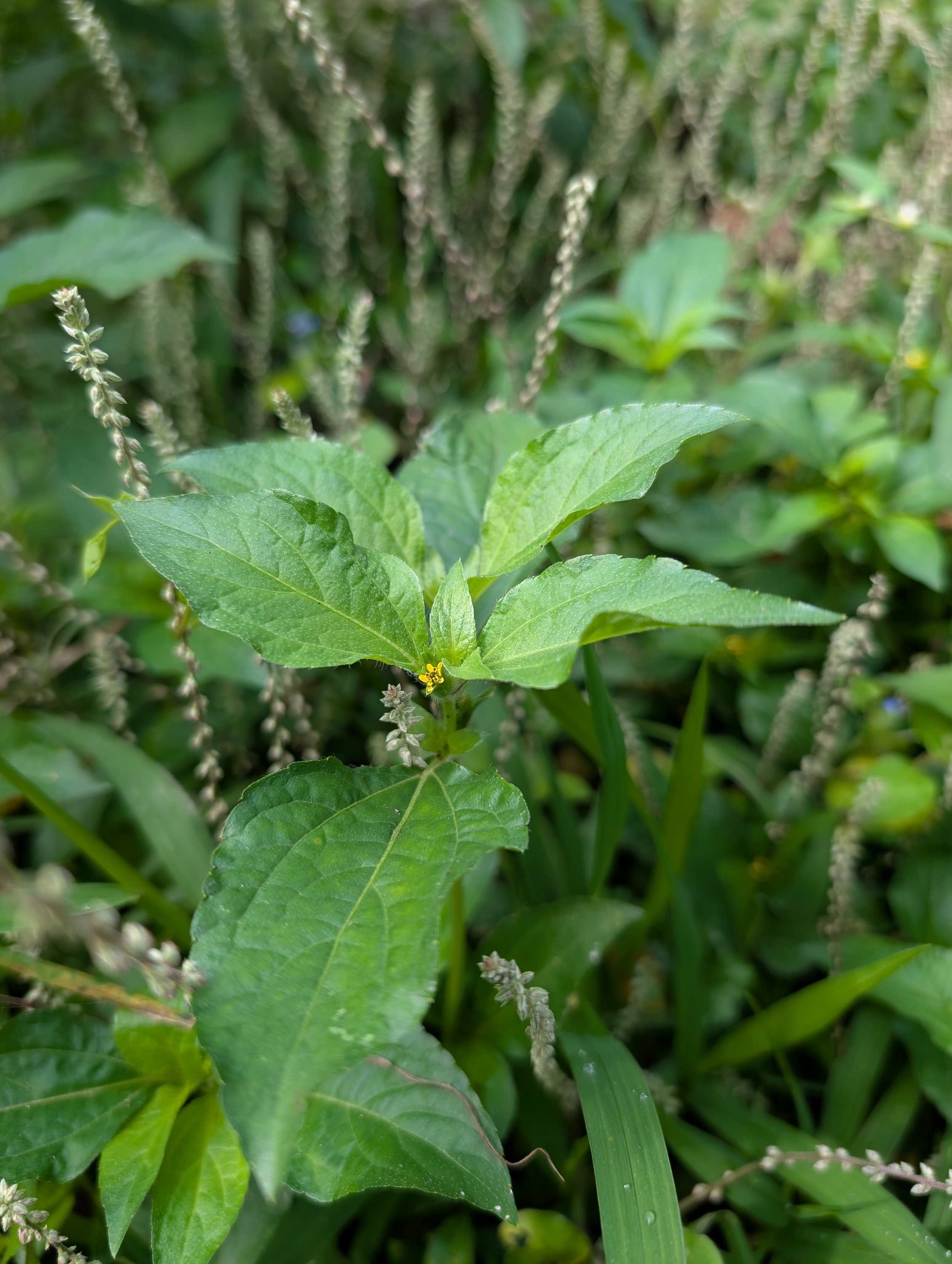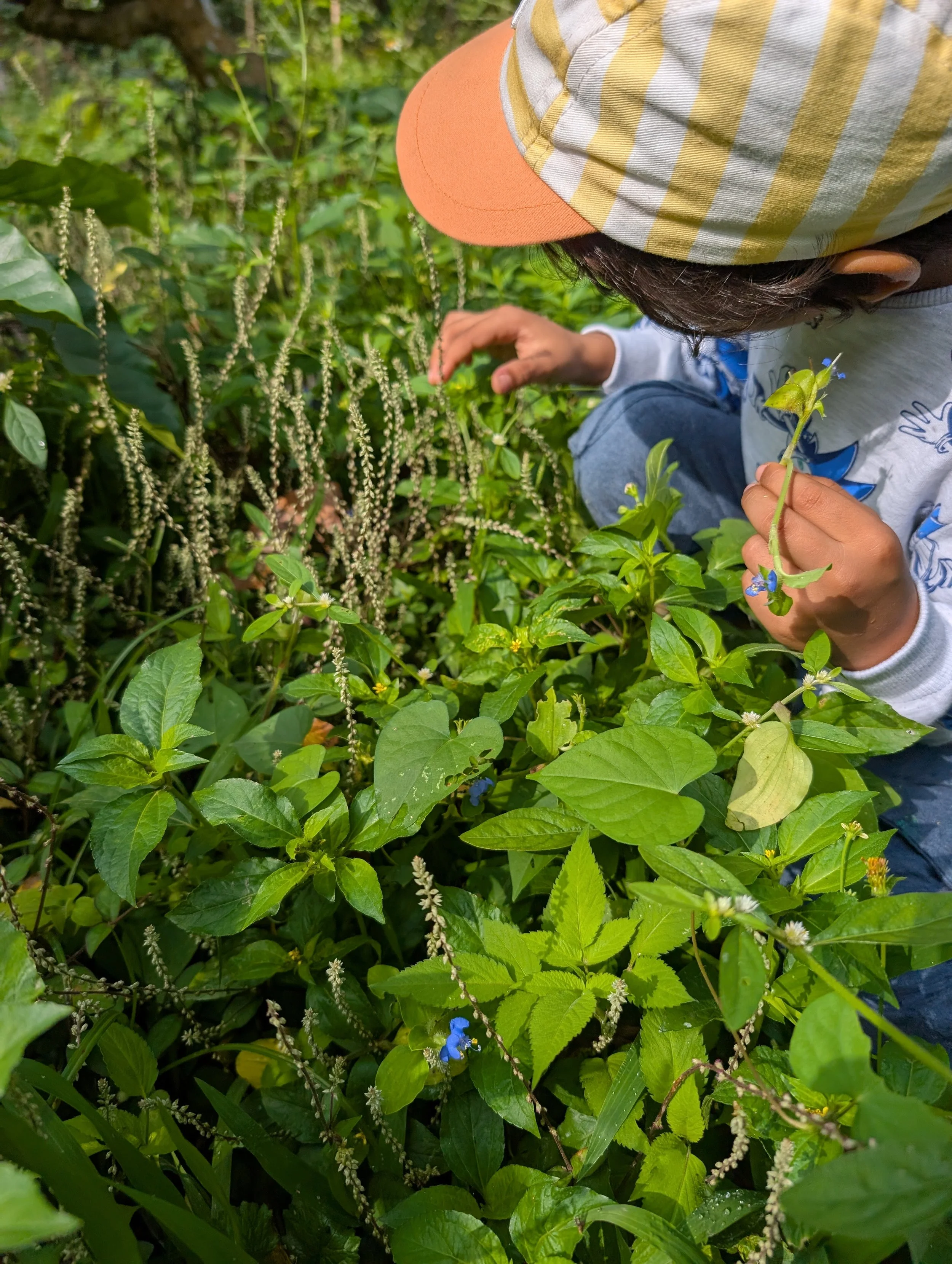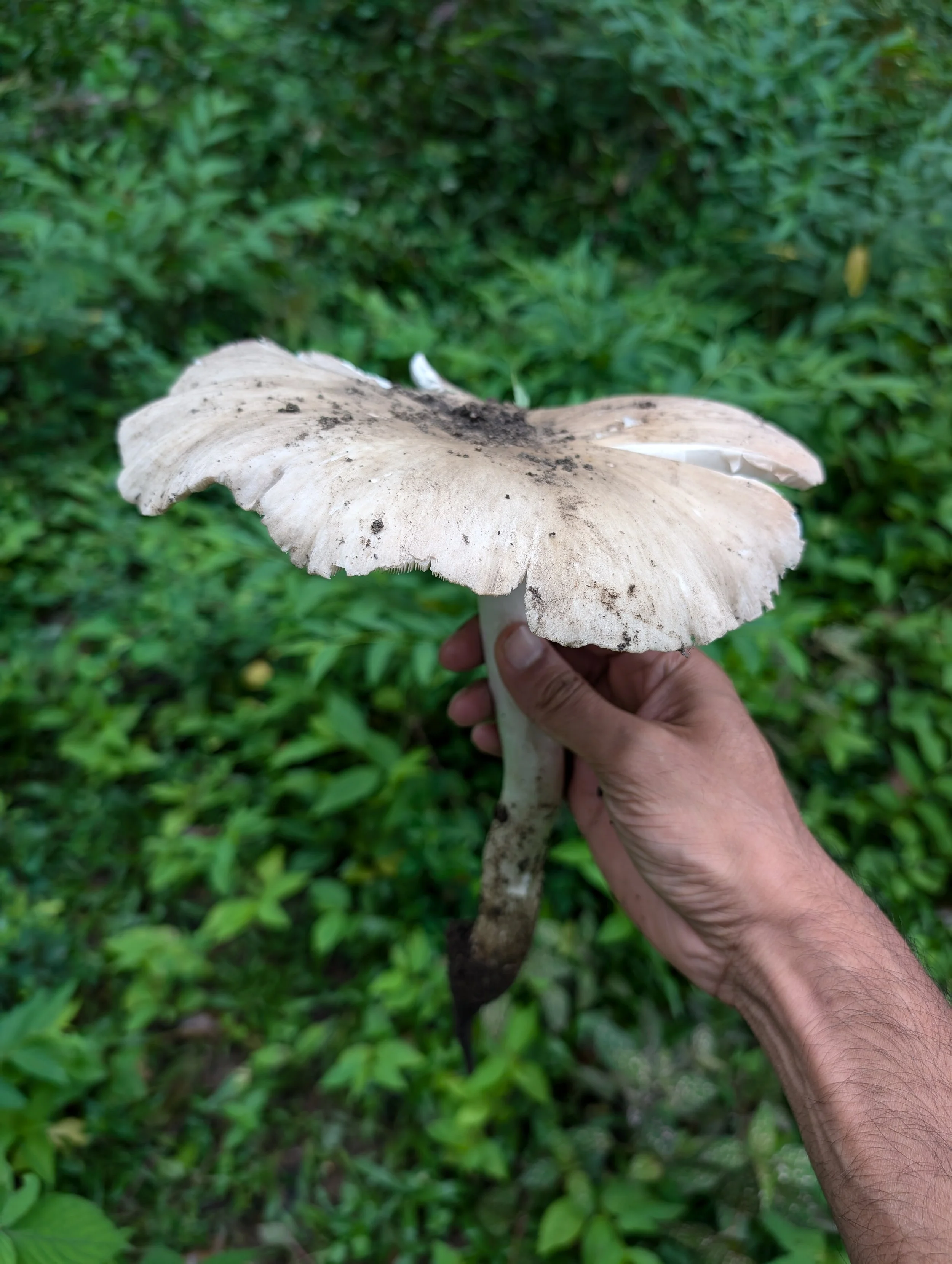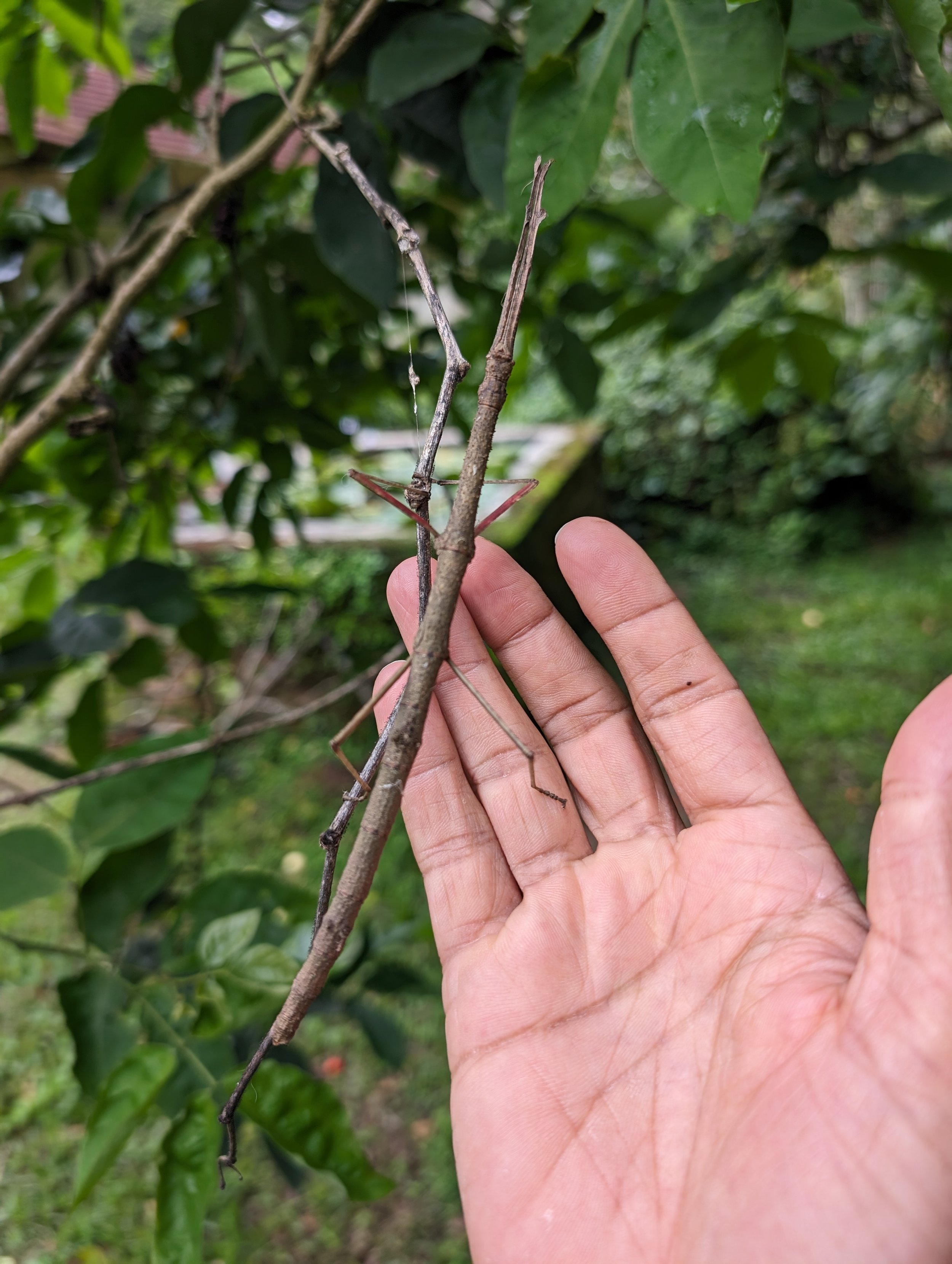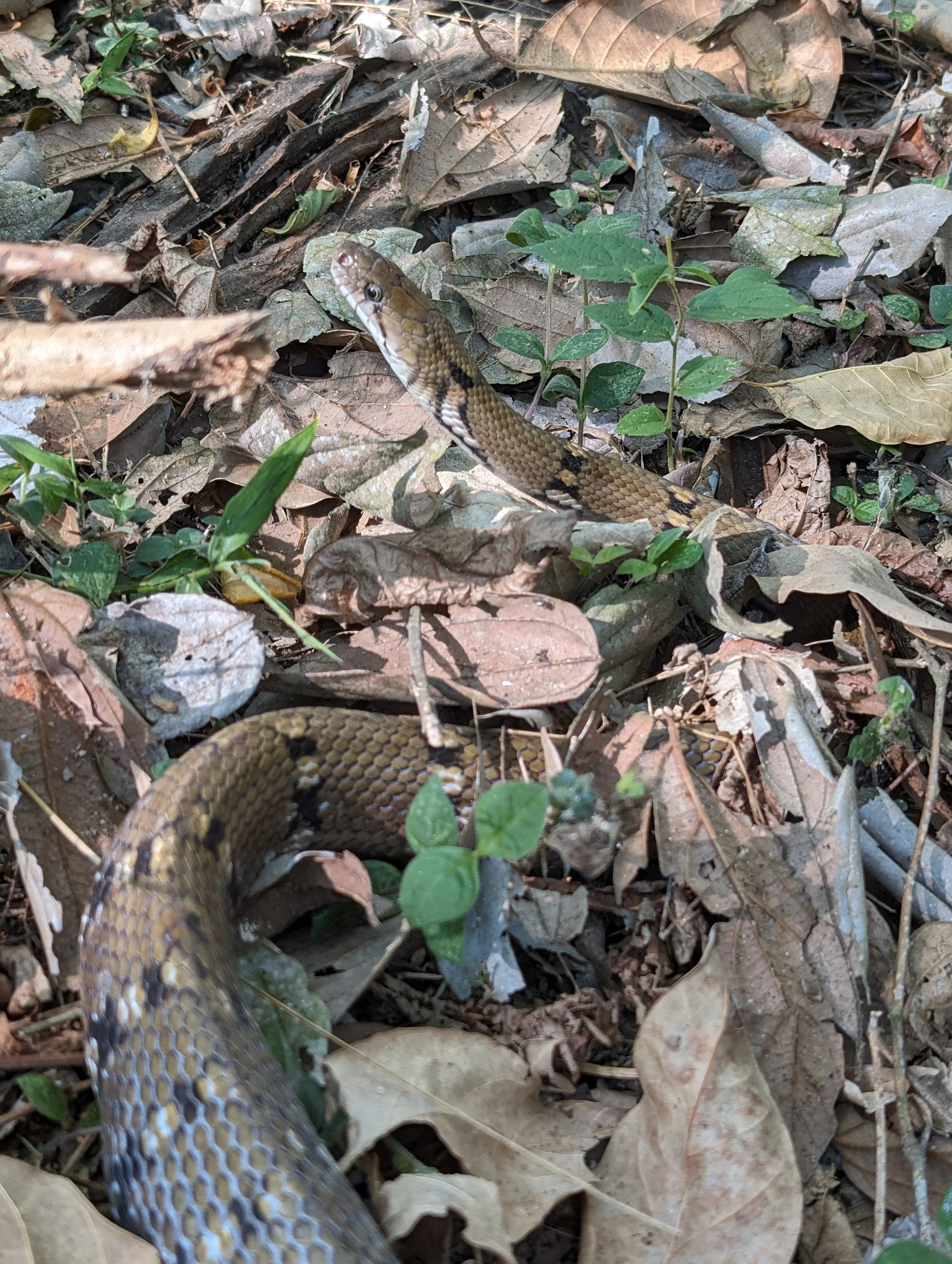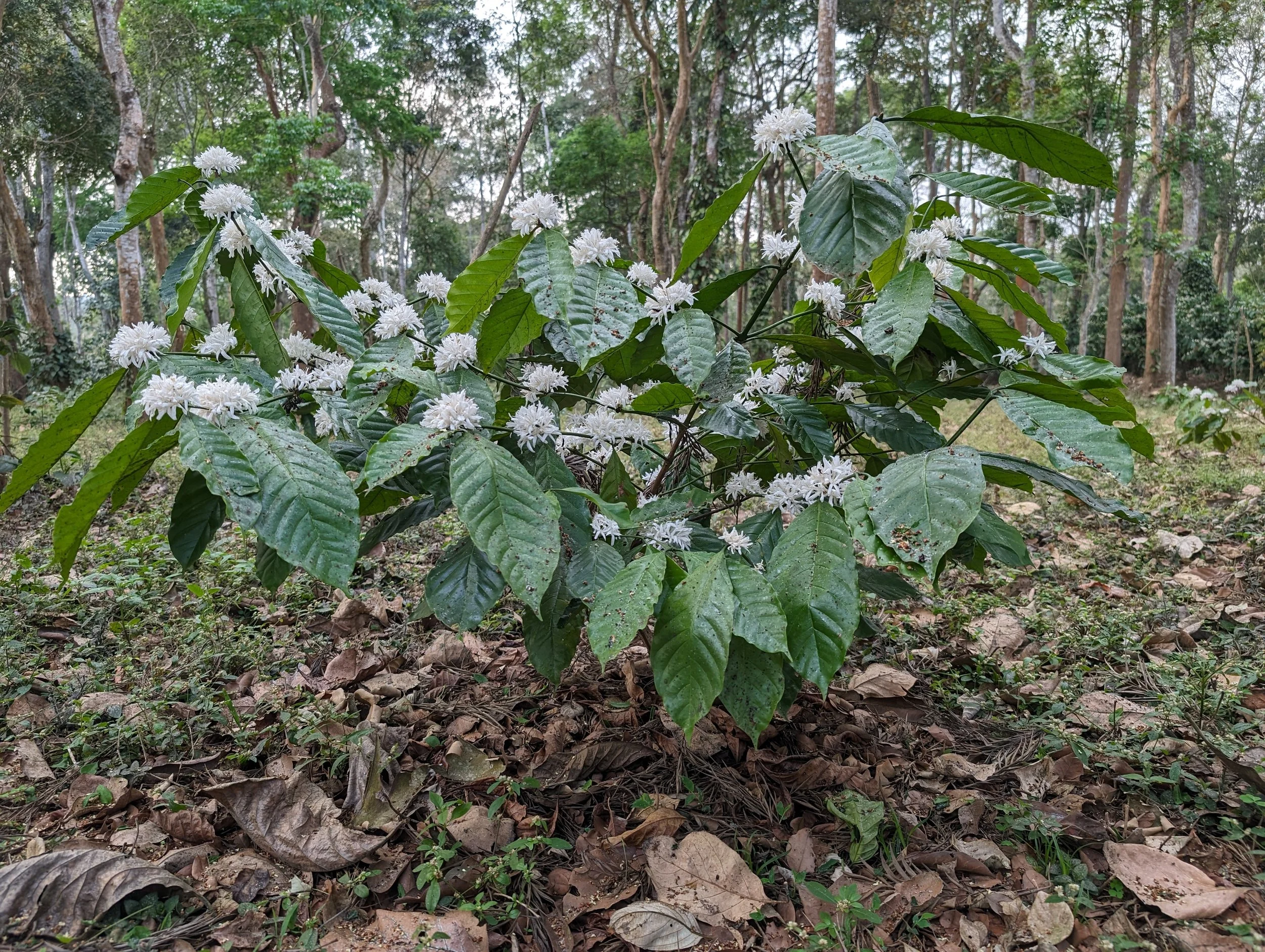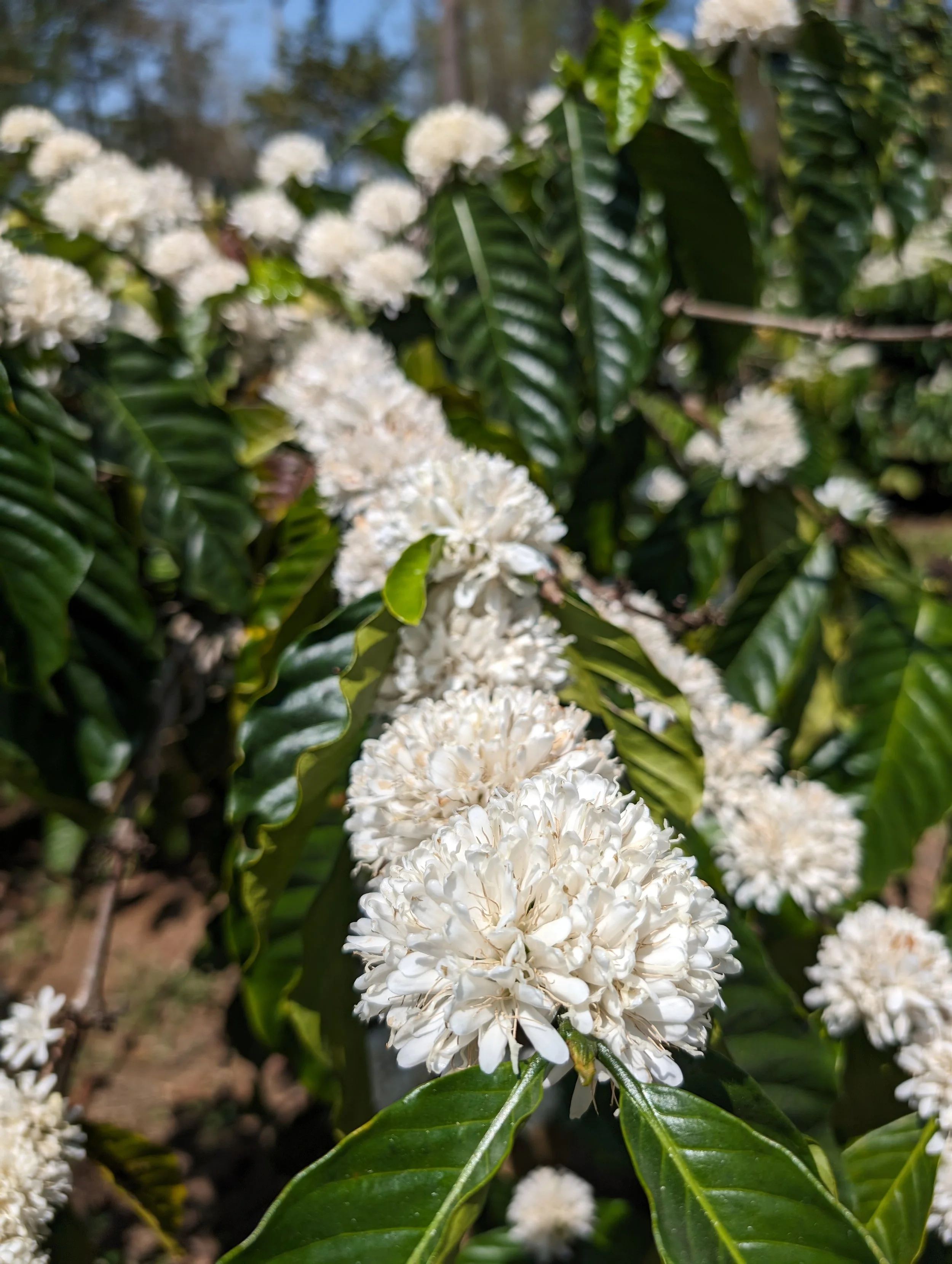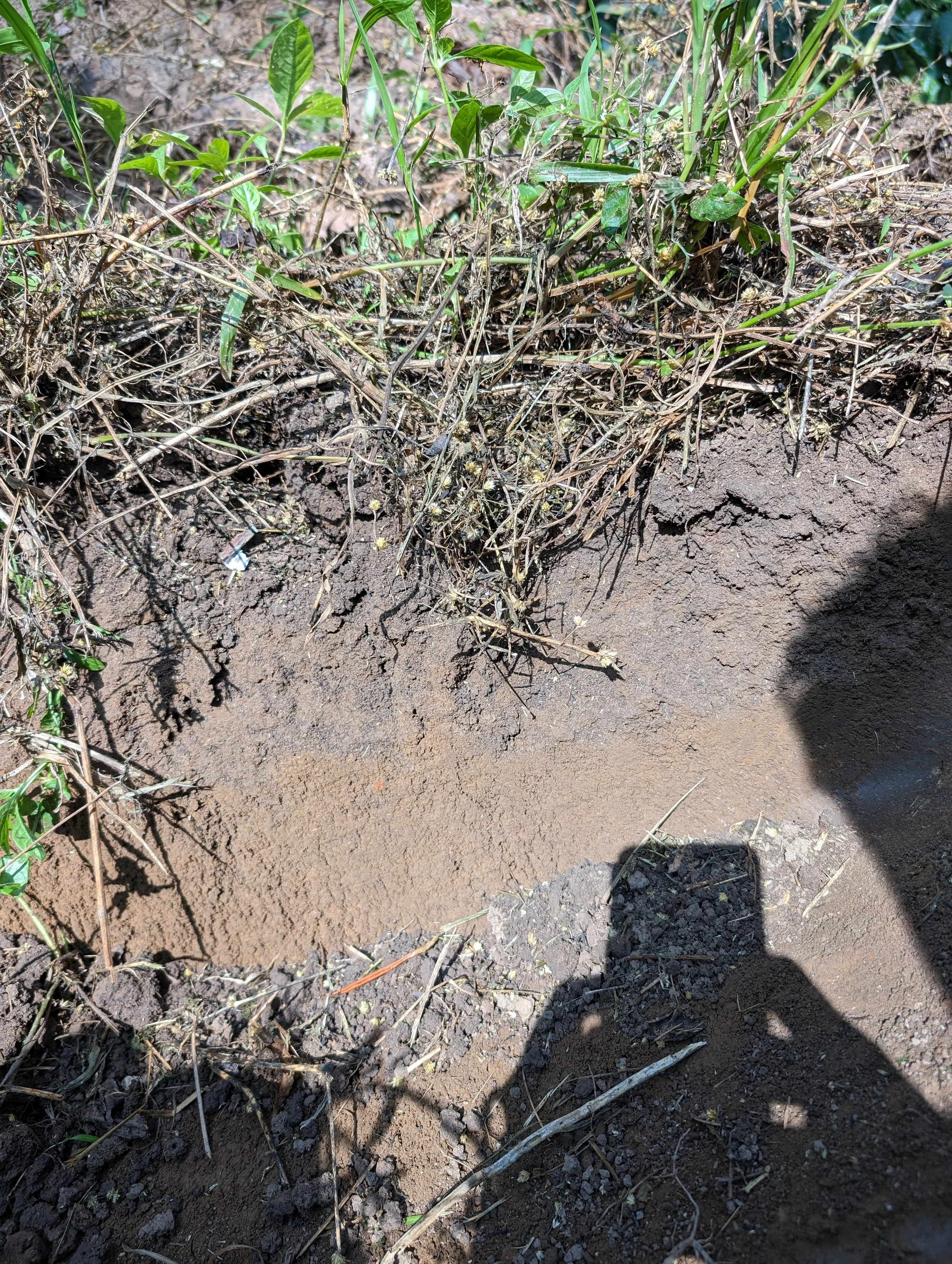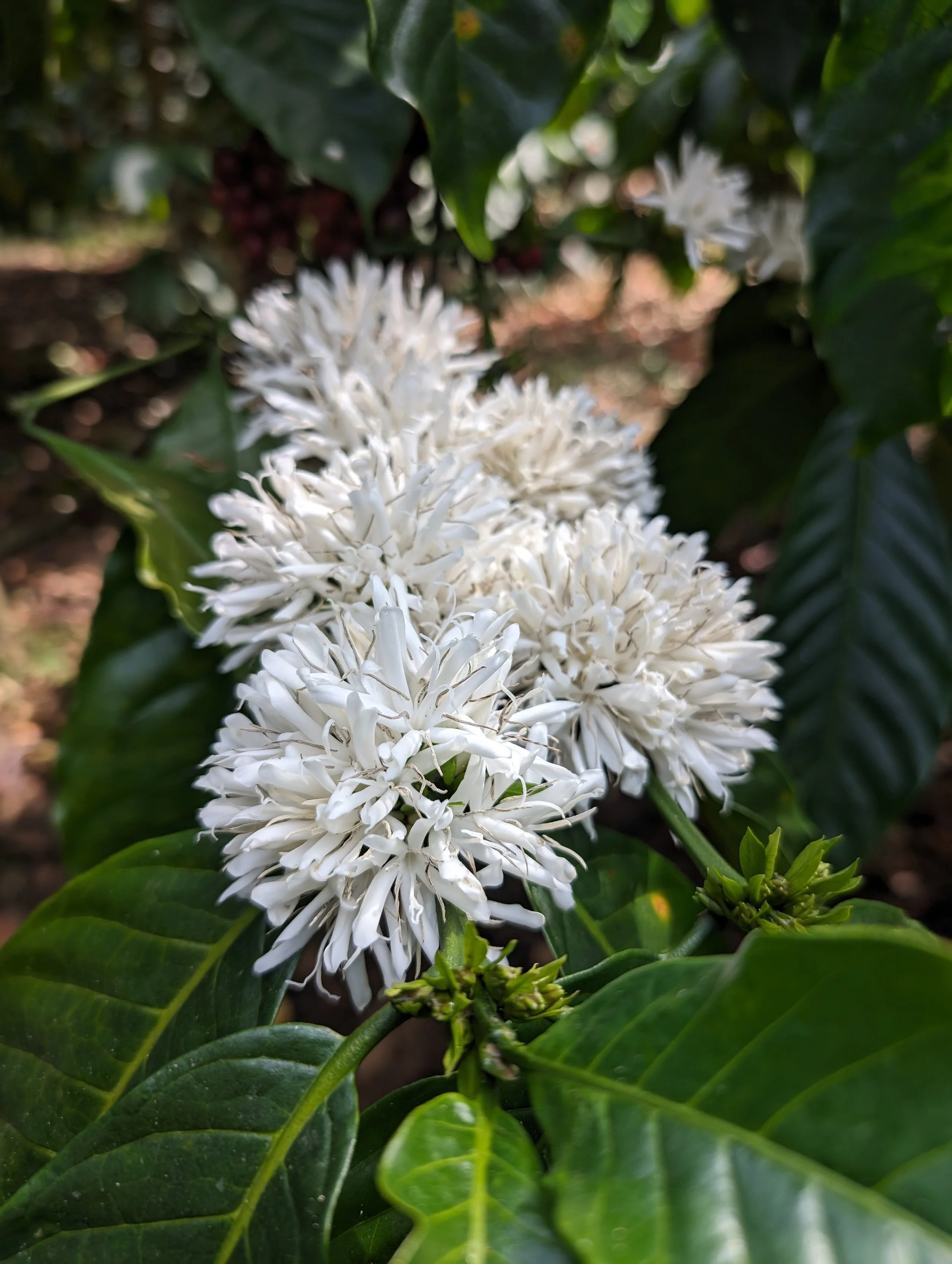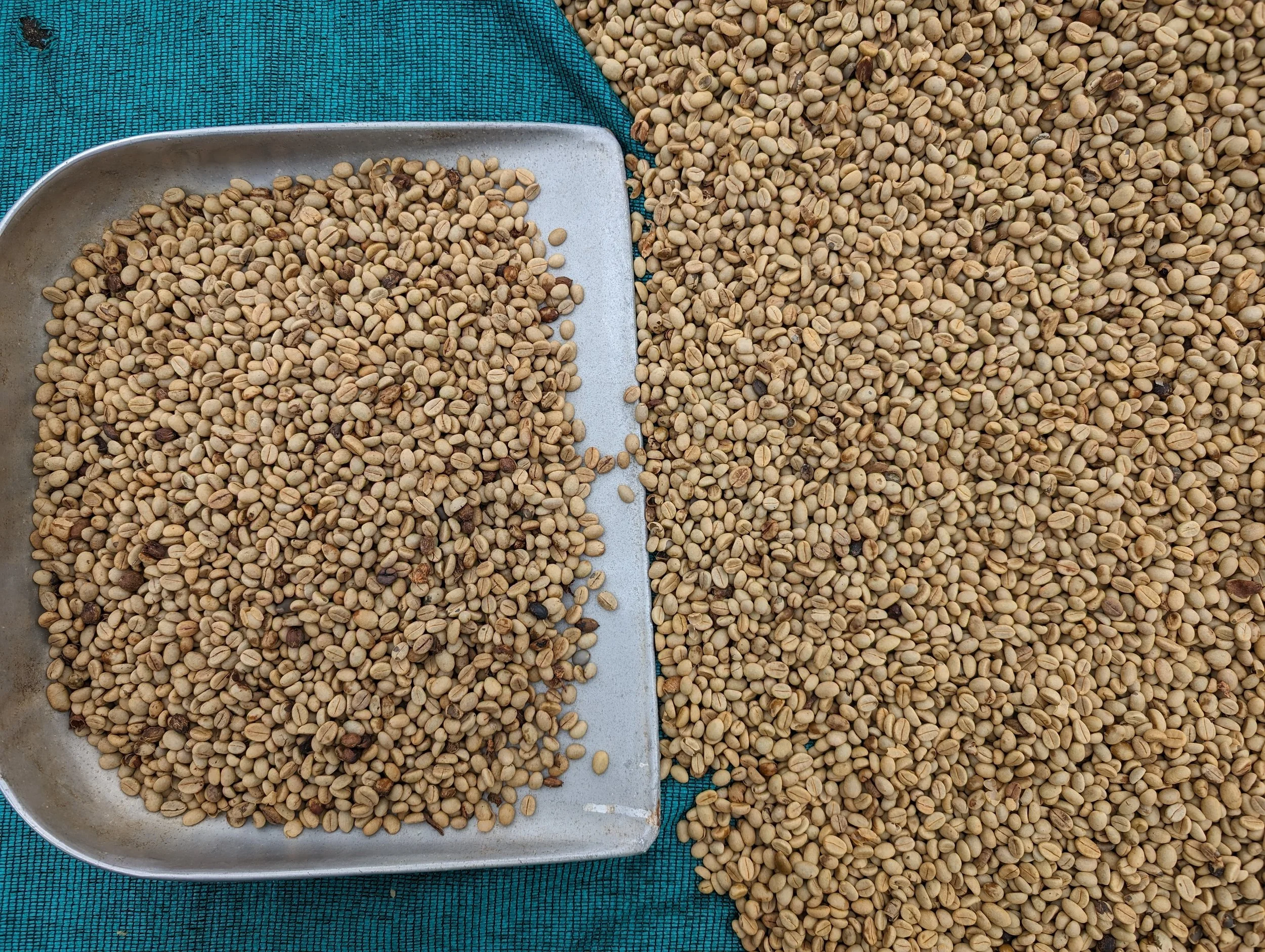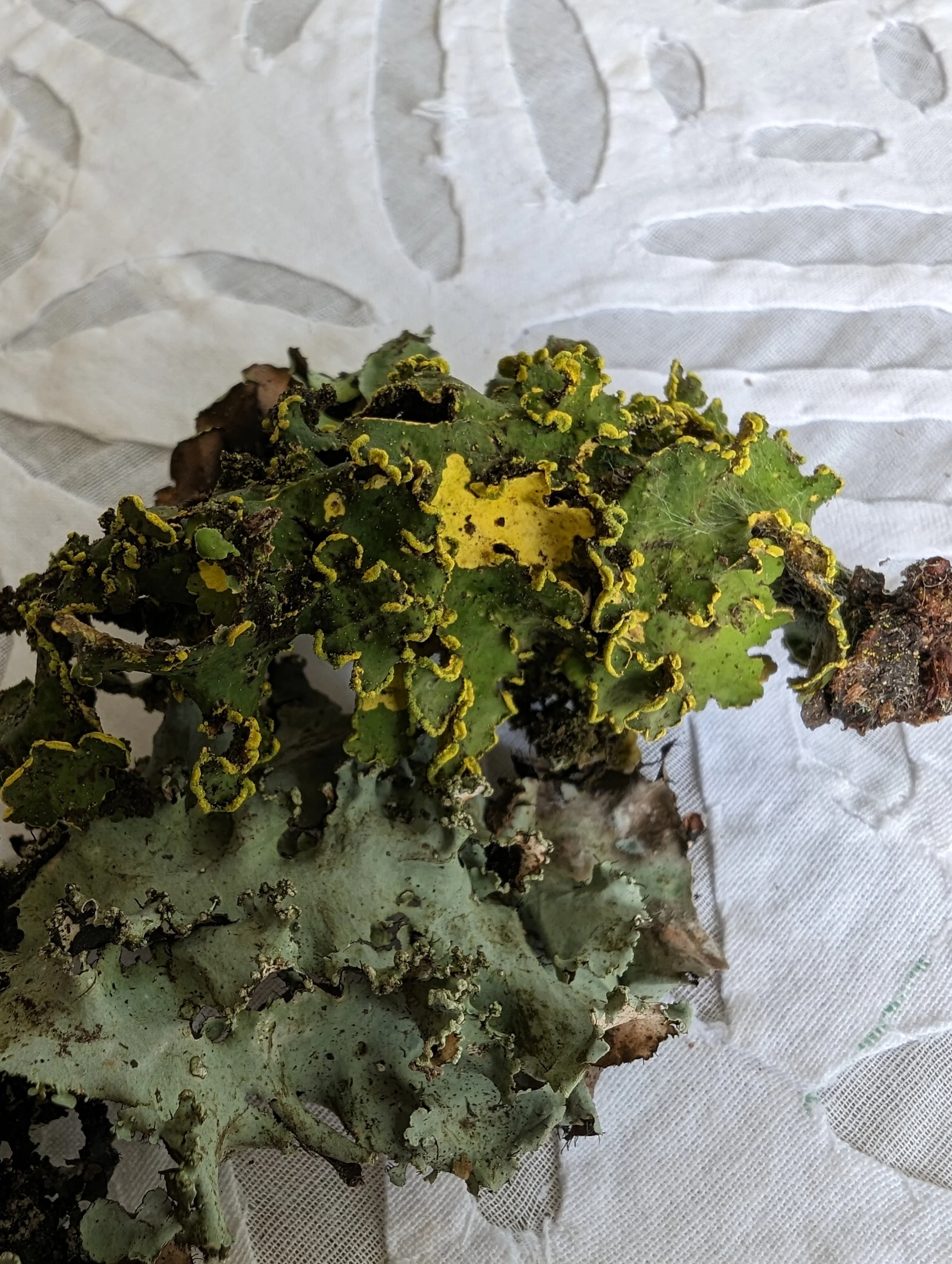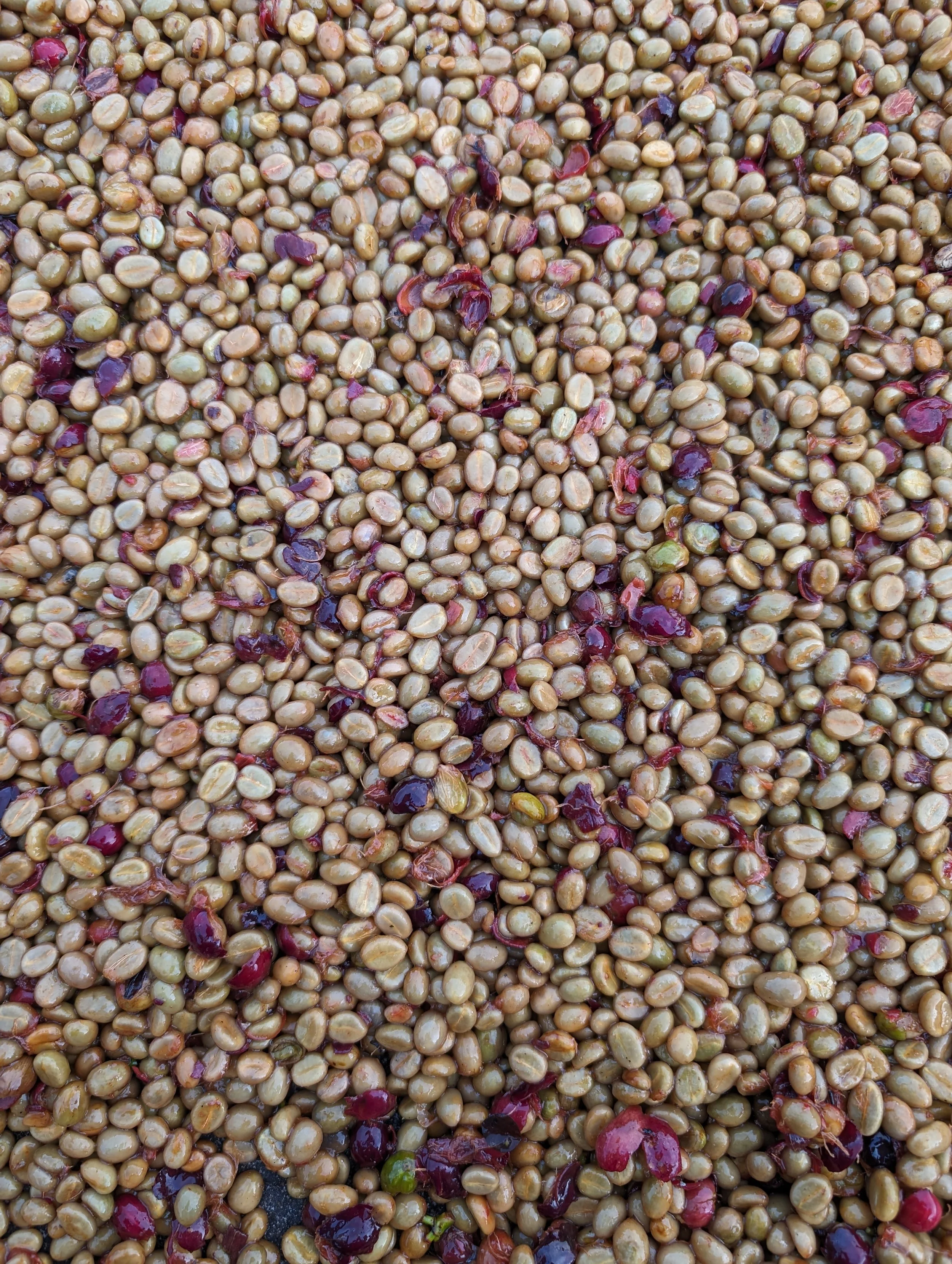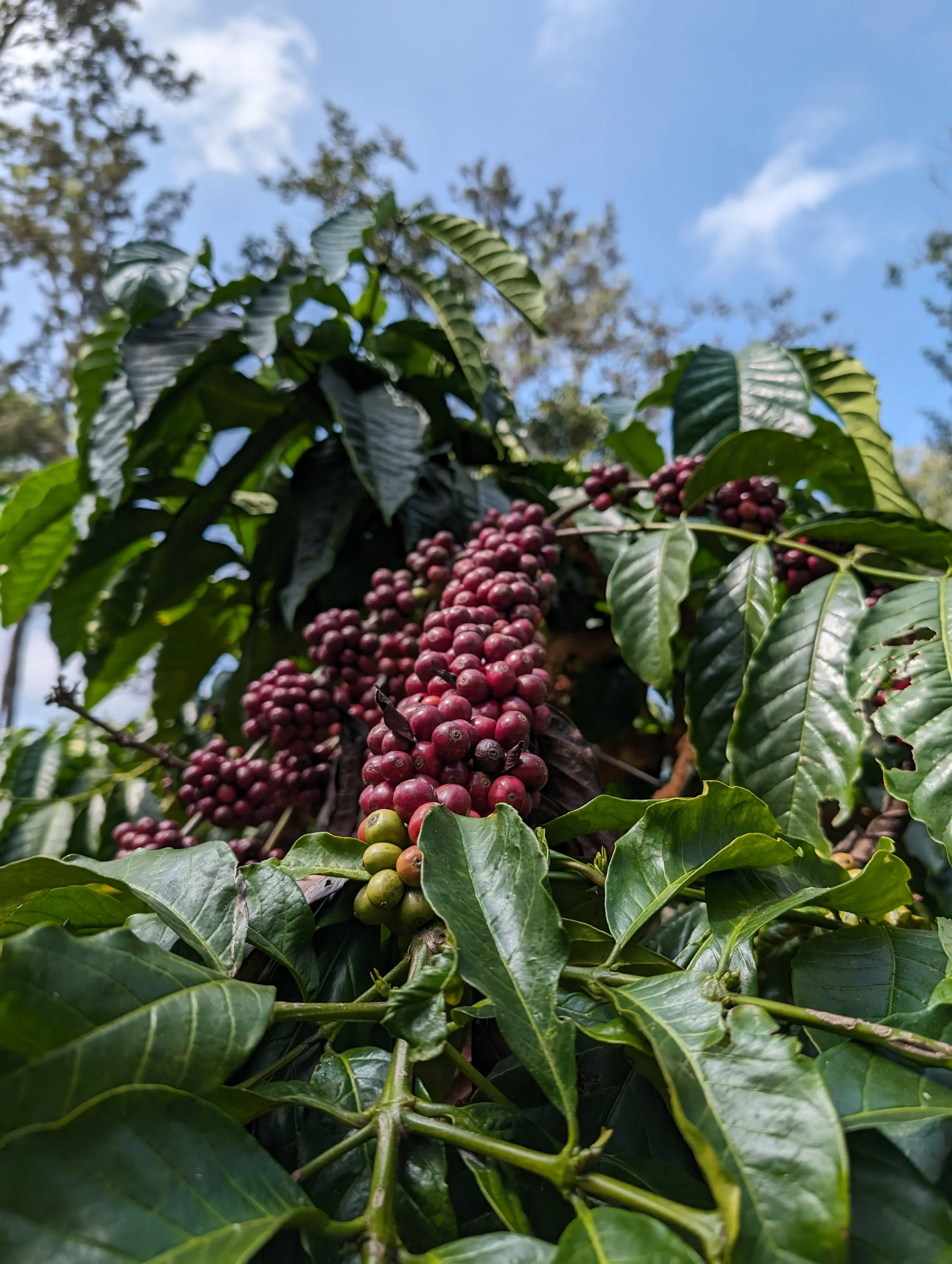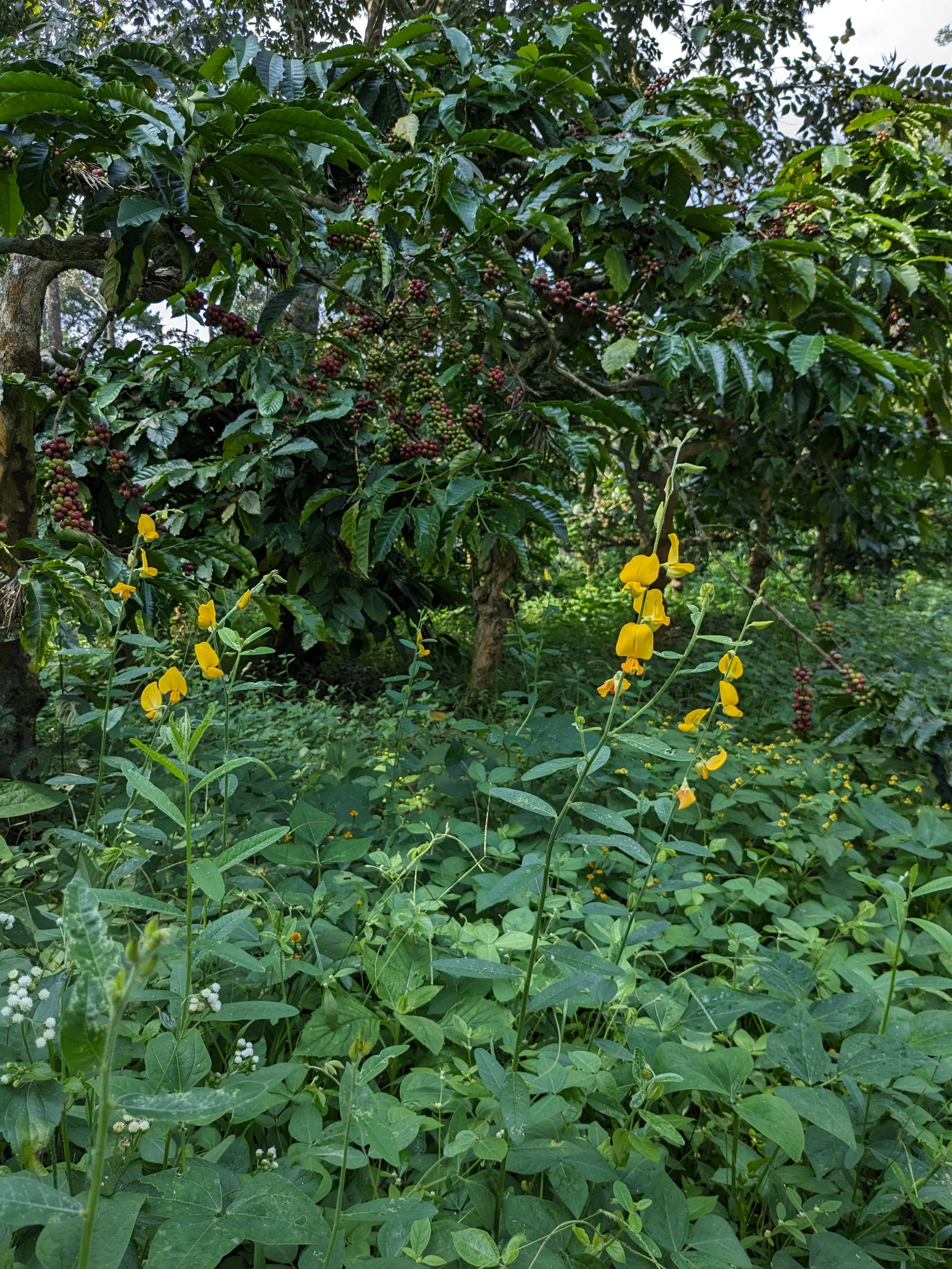Making coffee work for rural India
Indian coffee has been on our wish list for a very long time because of an incredible mix of properties we saw at some estates: advanced processing knowledge, a history of developing not only specialty arabica but robusta as well - combined with high ethics and business efficiency. You find yourself wondering how this country is not top of mind for more coffee roasters out there.
We admire our partners Komal and Akshay’s resolve to make coffee a viable way of living for themselves and the region. After their time in the UK, Komal and Akshay came back to Akshay’s family farm in India to restore it and seek alliances with a wide range of very diverse growers in the region. "We were not only looking for partners," says Komal "we were looking for passionate coffee growers that understand the complexities involved in this trade." With low prices and people leaving farms to work in cities, their proposition has to be based on higher prices and innovations: both technological as in terms of (regenerative) agriculture). Through hard work and a firm resolve they are proving that through coffee, a better future is possible for the people in their region and for the environment.
These are the estates Komal and Akshay brought together for the 2025 season.
More than anything, Komal and Akshay work with like-minded individuals whose produce they are proud to promote internationally.
Their goal is to help their partners achieve consistent prices year on year, so they can invest back in the fields.
Venkids, Craigmore and Kanbile, like many estates, have their own wet milling and drying capacity, and our parter SICC (also estate owners) grade, mill and export this coffee. Srilangalli is community coffee, so many of the growers do not have their own drying yards- SICC processes and dries their coffees.
Traceability
You can find all the signed contracts and shipping documents that we made with South India Coffee Company since 2022 below (Google Drive).
2020 : Met Komal and Akshay via Instagram, at the very start of the pandemic after Lennart’s return from Chikmagalur. First import late in the season to account for our need for more specialty robusta.
2021 :.import of Venkids Valley and some small lots from Mooleh Manay. SICC are redefining what the European market can do with high quality robusta, and talks start about importing high quality arabica and excelsa.
2022 : Massively updated and expanded portfolio, including single farmer and community lots. People are astounded by the arabica’s produced by SICC’s partners, Craigmore is used in the Dutch Brewer’s Cup.
2023: Five new producers join our project through SICC. This means widening our vision and shared purpose with like-minded individuals who are already doing so much to fight global warming, increase farmers' livelihoods, and offer great coffee to the world. South India Coffee Company is becoming a pioneer in sustainable technology, standing at the forefront of soil analysis, installing a huge solar irrigation system, a bee project, and an ambitious economic viability program with profitability per acre compared to profitability per crop.
Our QC’s Impressions
India is diverse! Still somewhat of a “terra nova” on the specialty map, this country produces very special coffees. Indian arabicas tend to have bold flavours. Where the honeys are more delicate and floral with notes of berries and tropical fruits, the anaerobics tend to have pronounced concord grape and watermelon flavours. We noticed that the average washed Indian profile has a hard time finding its fans, but you can expect a good caramel sweetness, notes of black tea, cinnamon and stone fruits with a creamy mouthfeel.
The flavours and texture of excelsa are like eating creamy vanilla ice cream with almost overwhelming liquorice sweetness, some notes of papaya and raspberry and caramel aftertaste.
What stands out in our Indian specialty robustas is its cleanness. Sweet, chocolaty with warm spices, very full body and some hints of stone fruits if you roast it light.
Mooleh Manay Natural Yeast Fermented (2024)
Roasting Advice
None of the Indian varieties seem to be easy to roast at first…This origin definitely needs some time and attention from a roaster to find the way to tame it. As a rule of thumb stretching “yellow” or Maillard phase will help a lot in bringing up both sugars and acidity (in arabicas) in these coffees. For excelsa, keeping your development time around 16% lets you not being fooled by its light colour and thus develop it fully.
At the moment we use a few profiles for different varieties and processes: Natural, Honey, Washed Asia, Robusta and Excelsa. You can use them freely, however pay attention to the Excelsa profile as it’s meant to be manual, so you will need to mark the first crack and press the drop button at 15-16% DT.
Komal and Akshay Dashrath
Komal and Akshay are very keen to meet roasters and all lovers of their coffee and regularly feature them on their beautiful instagram channel. Get in touch with Komal for any inquiries about any of the estates and communities they work with.
Email: komal@sicc.coffee
Phone: +91 99701 98003
Nakur Shirangala, Coorg, Karnataka, India







